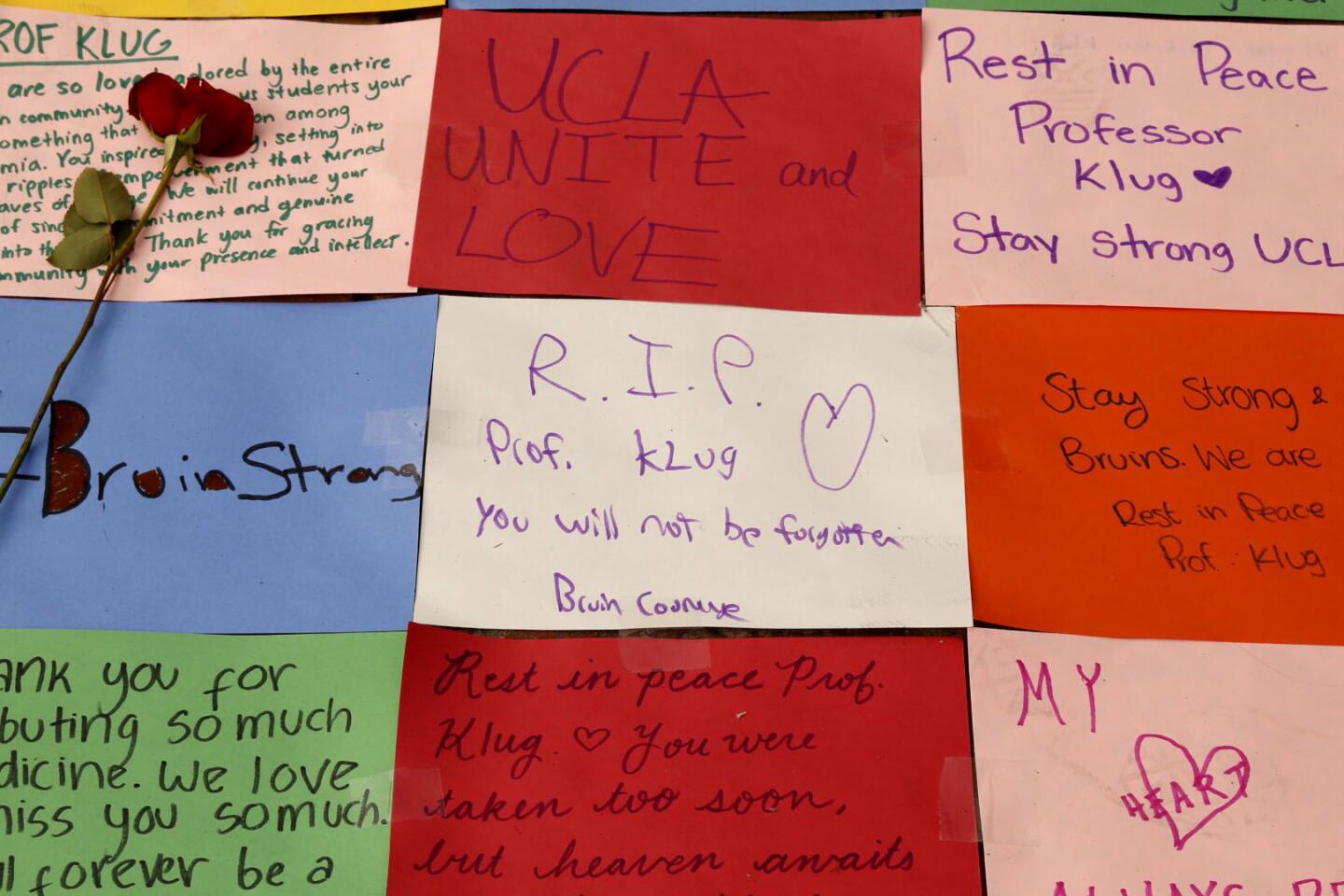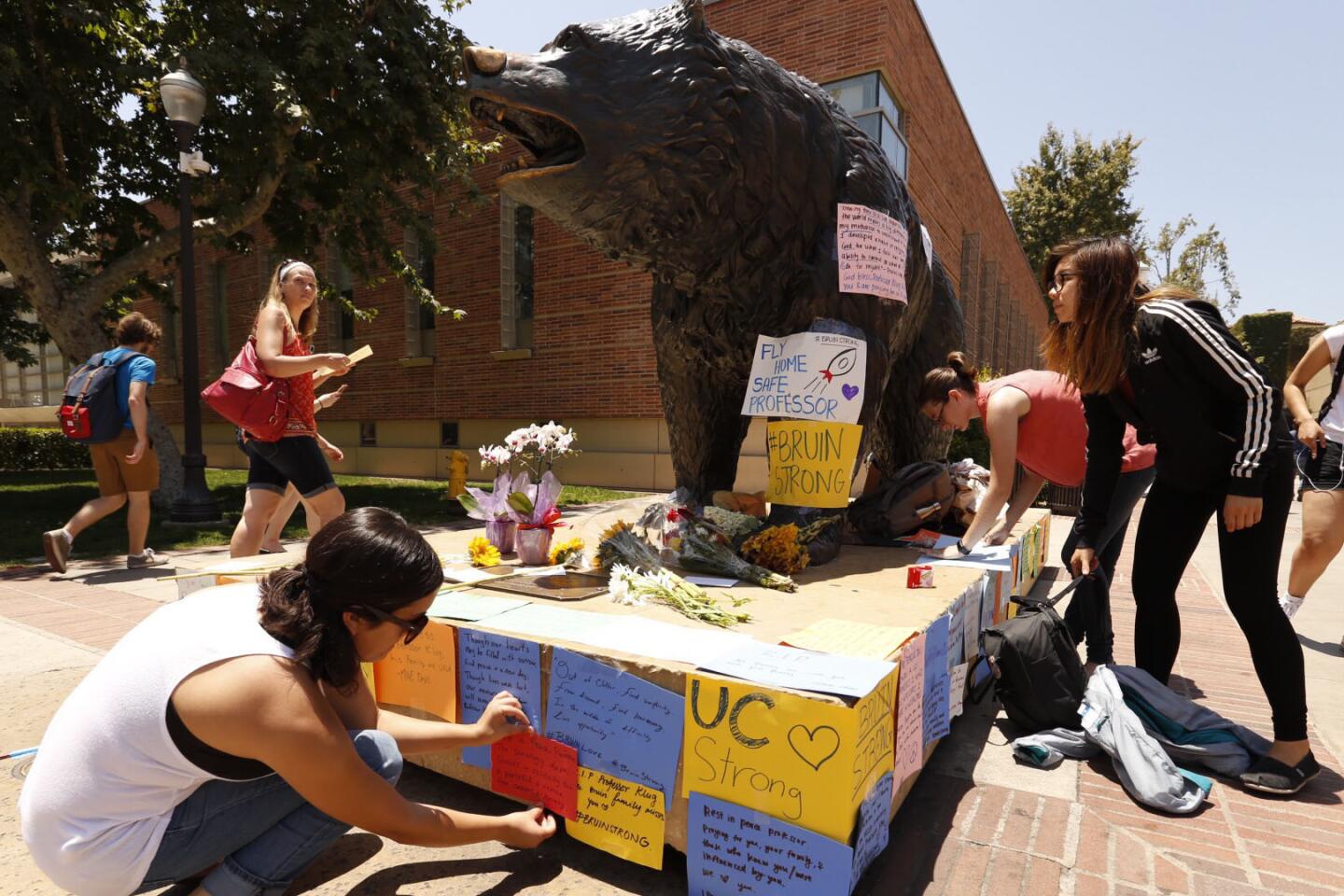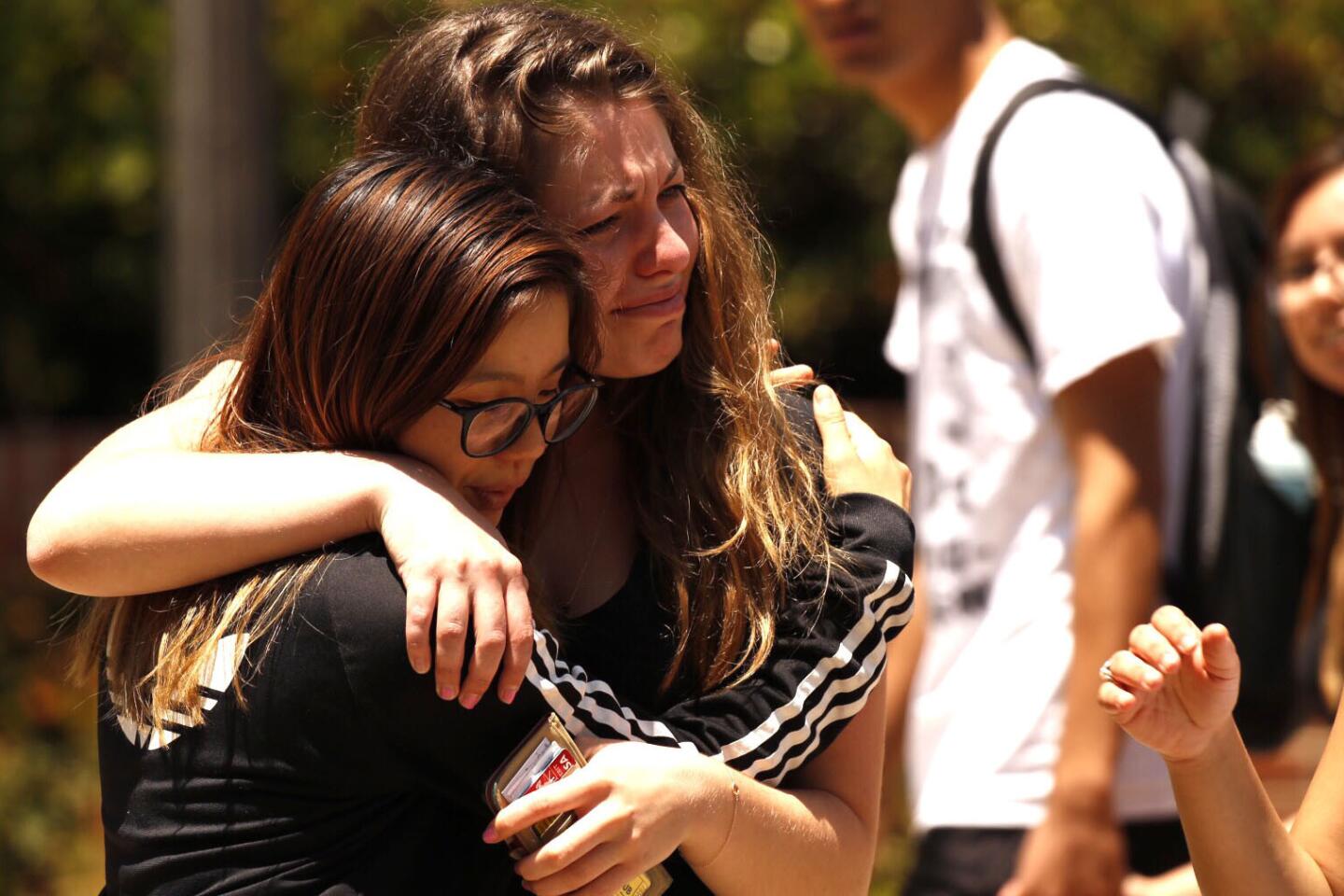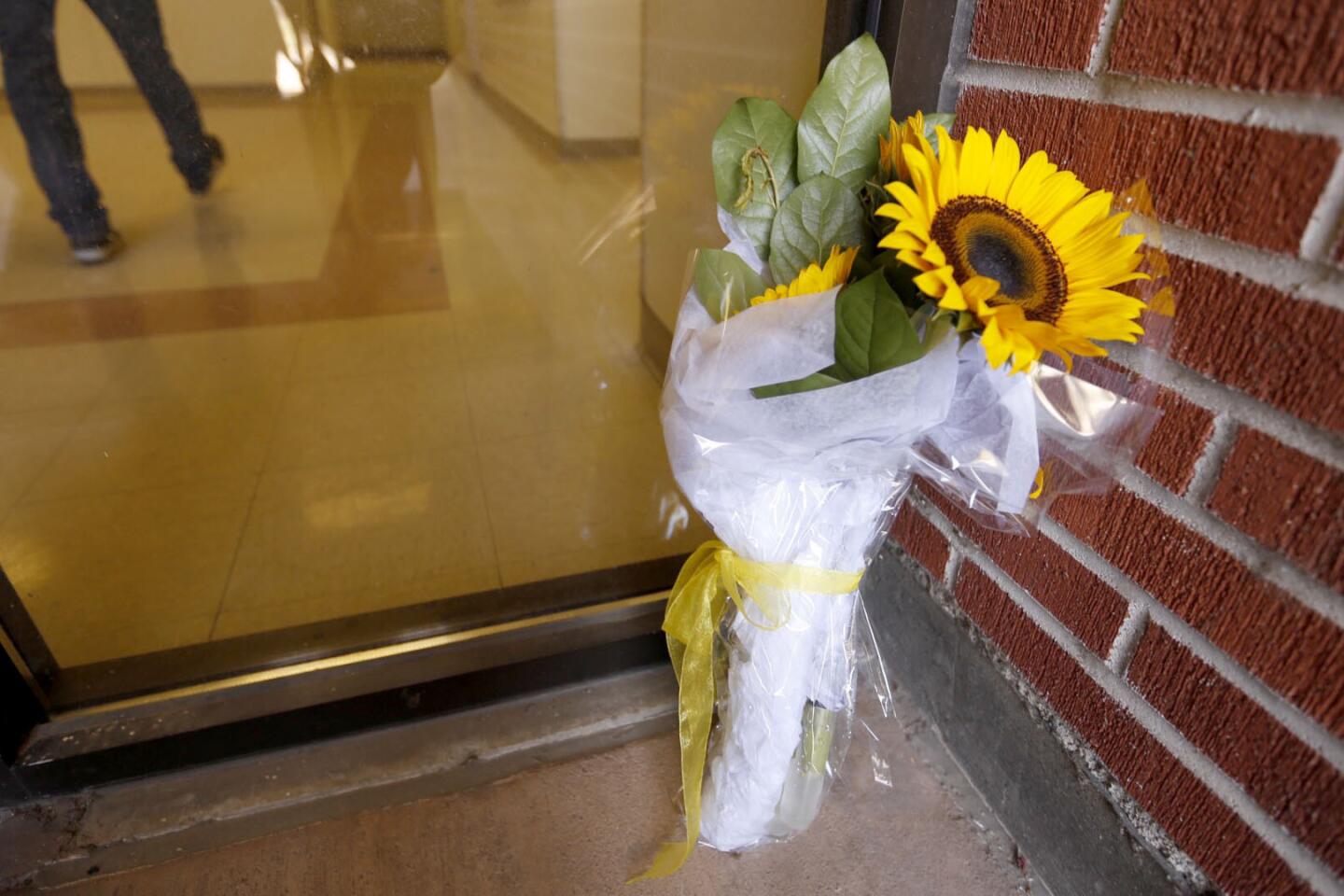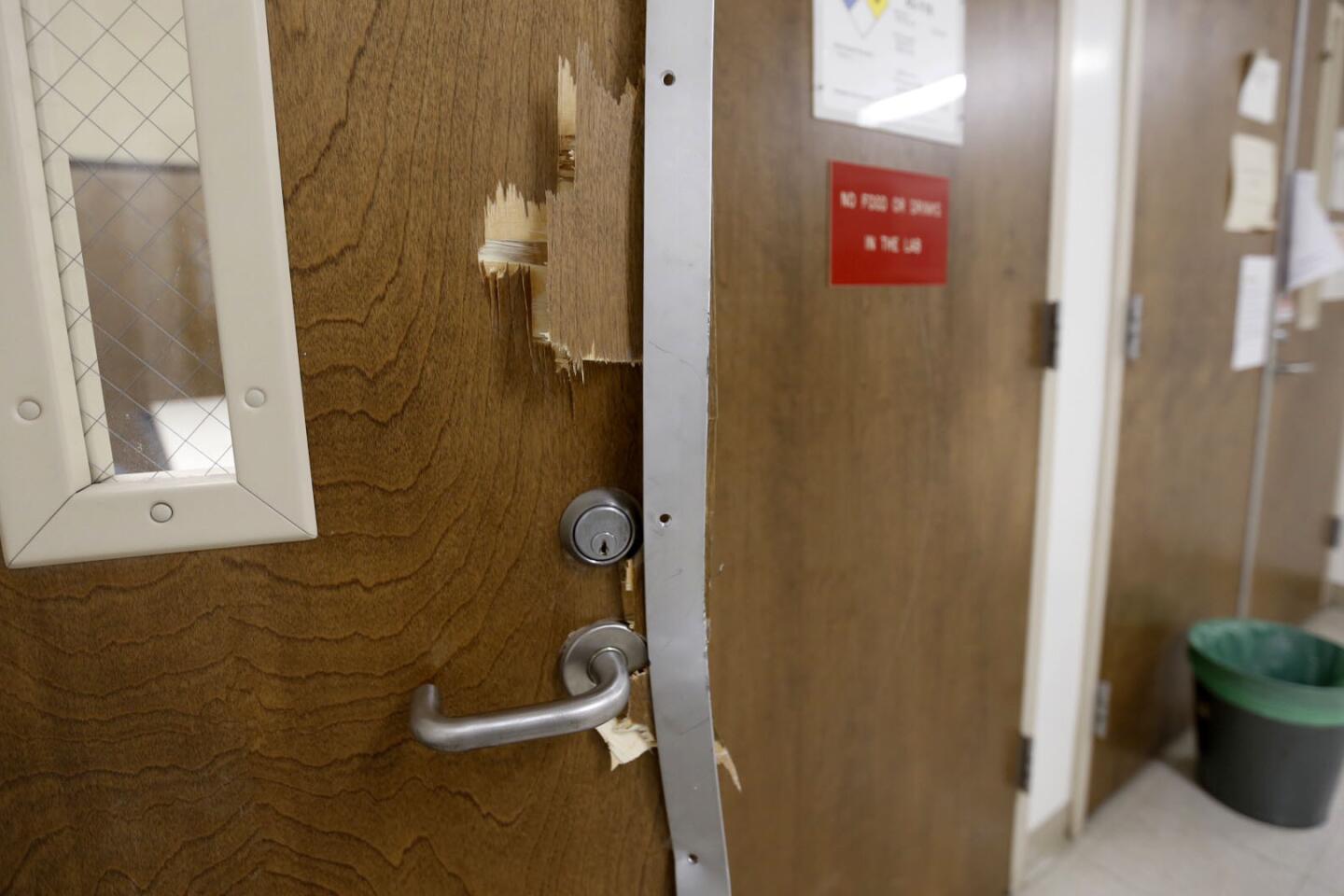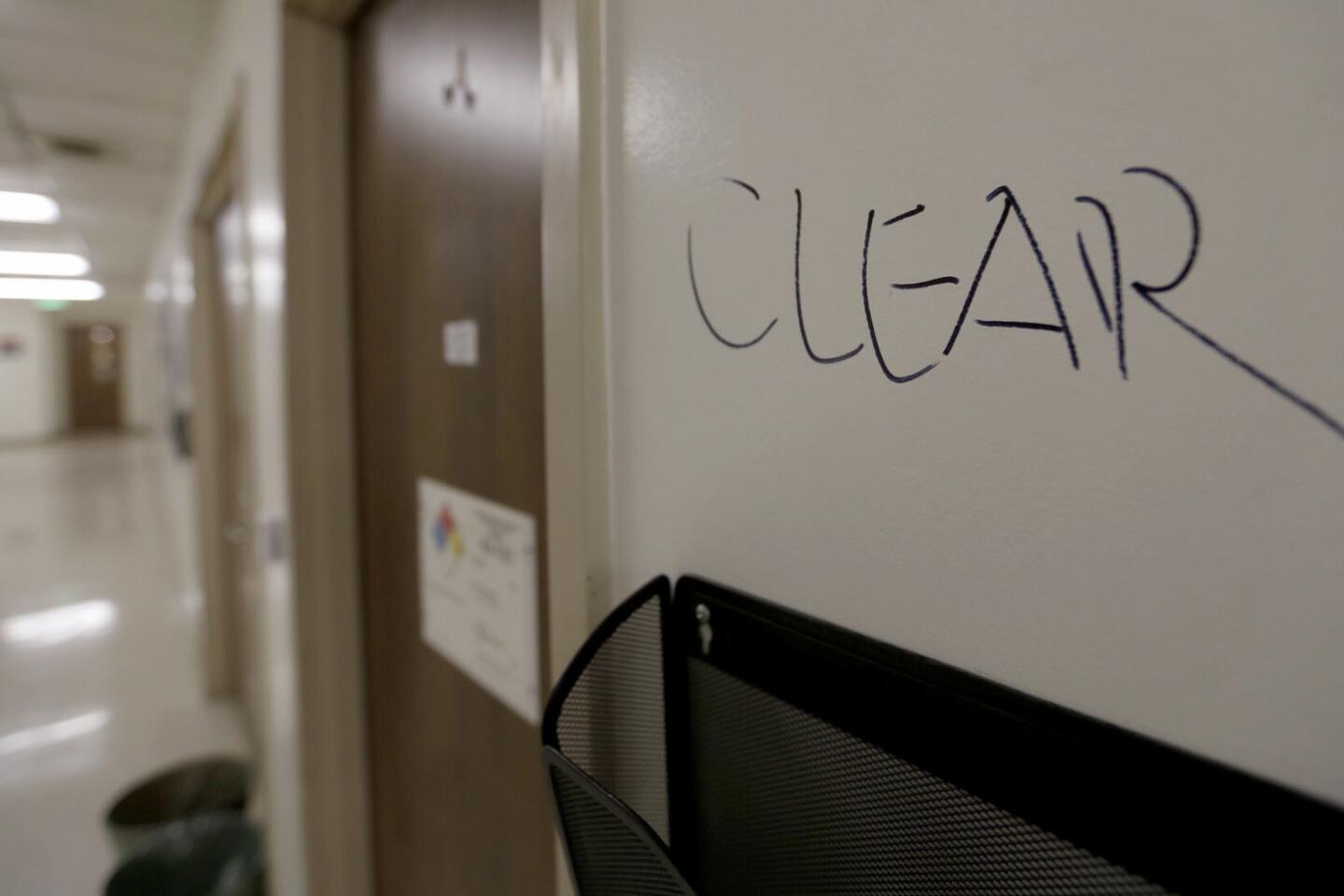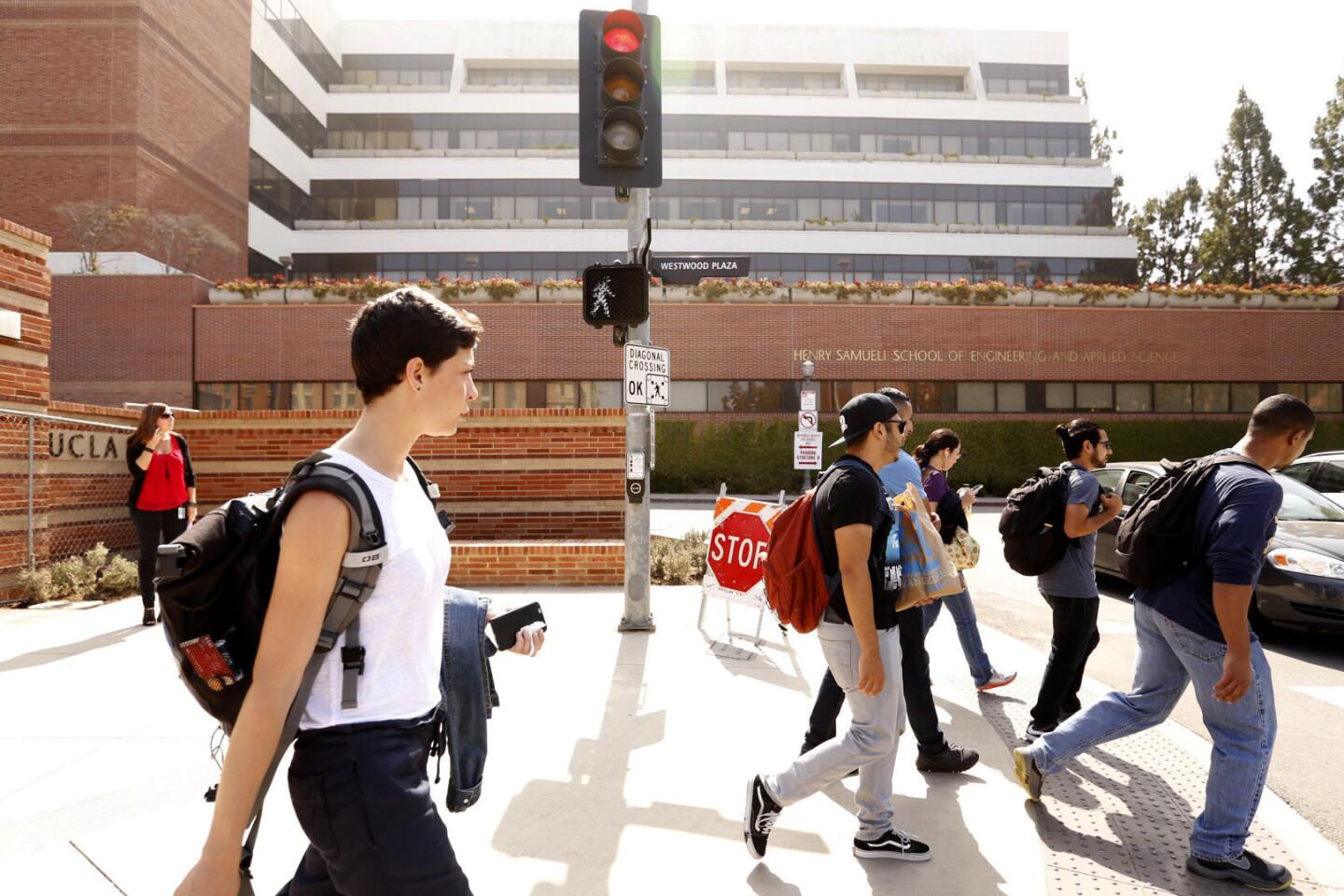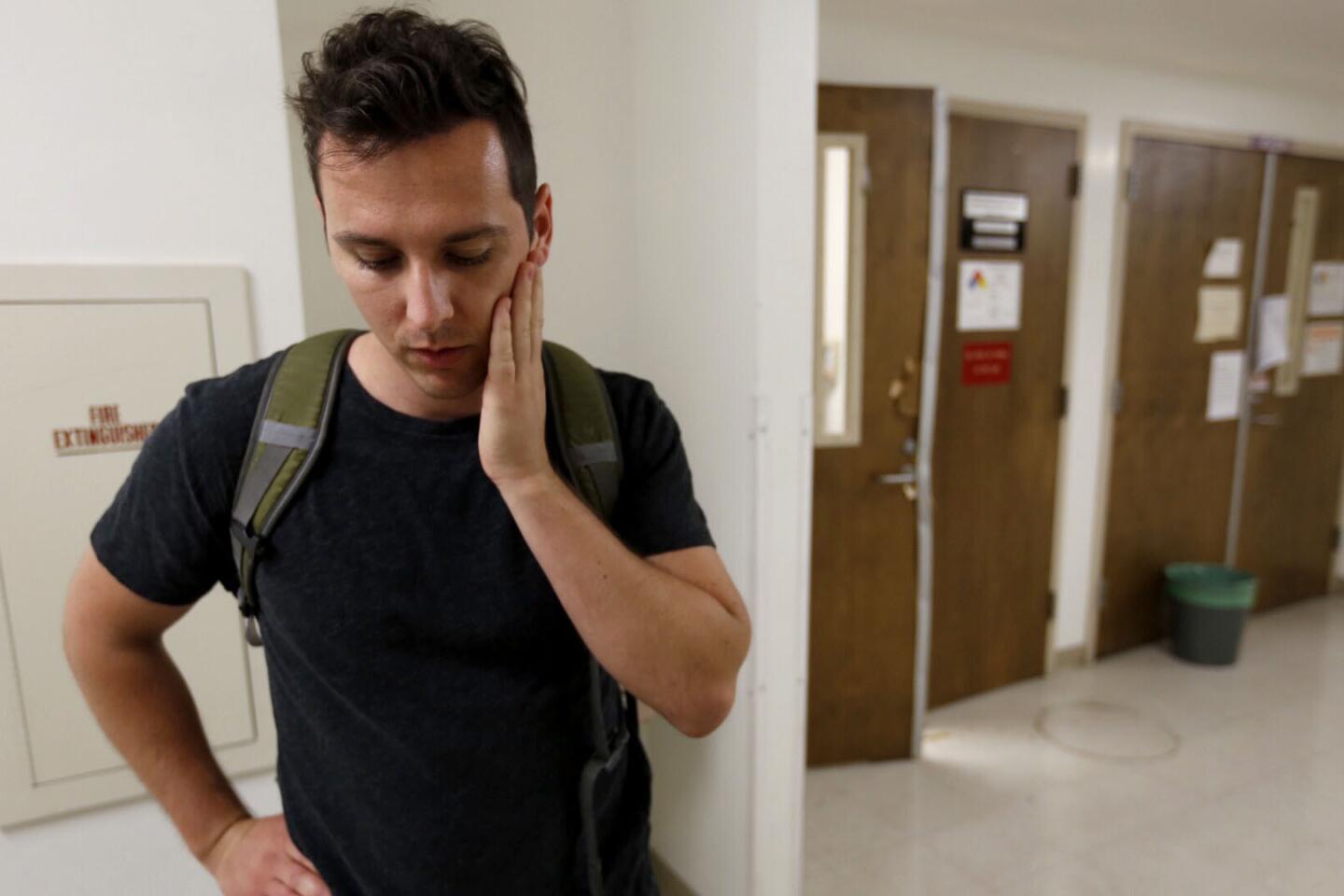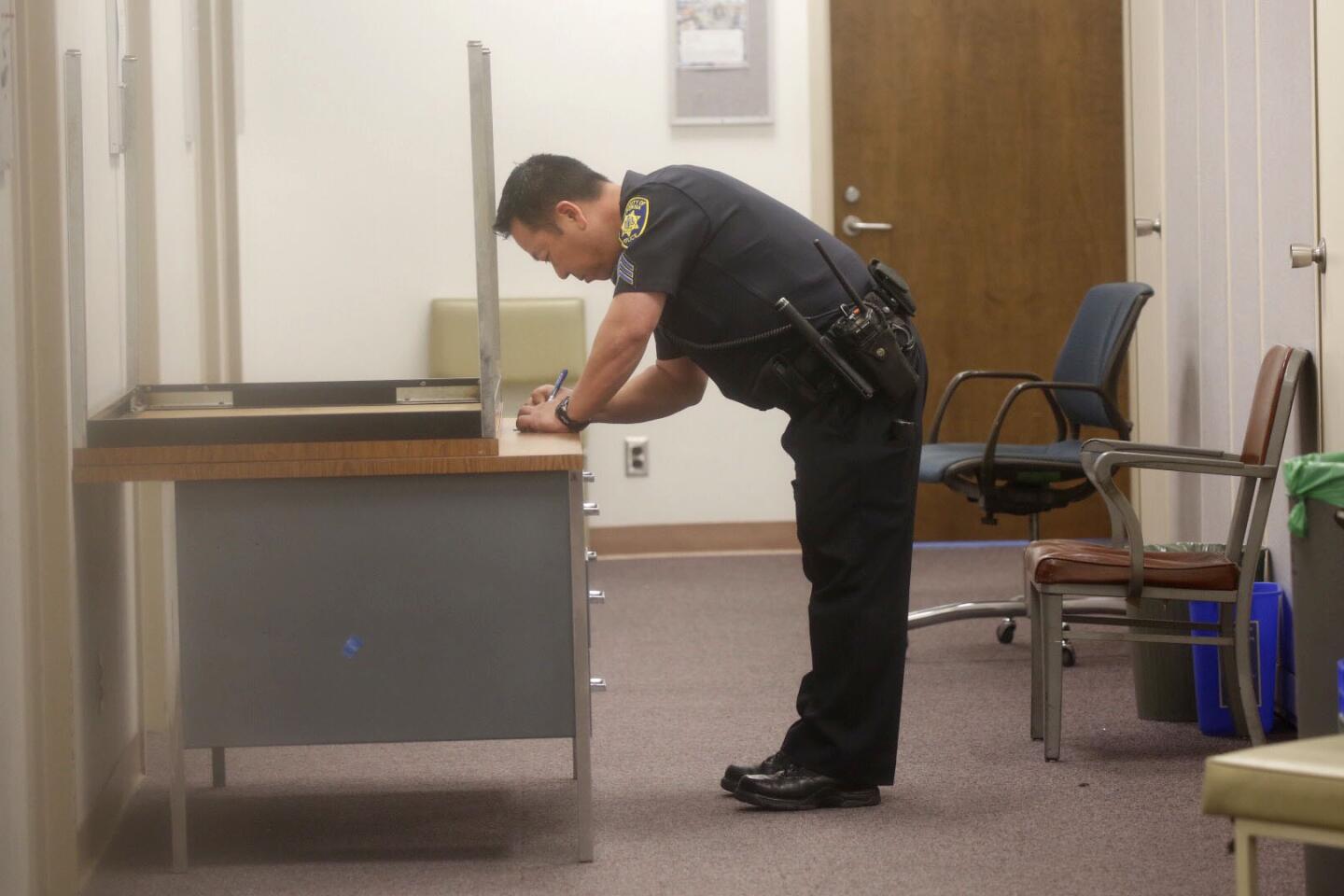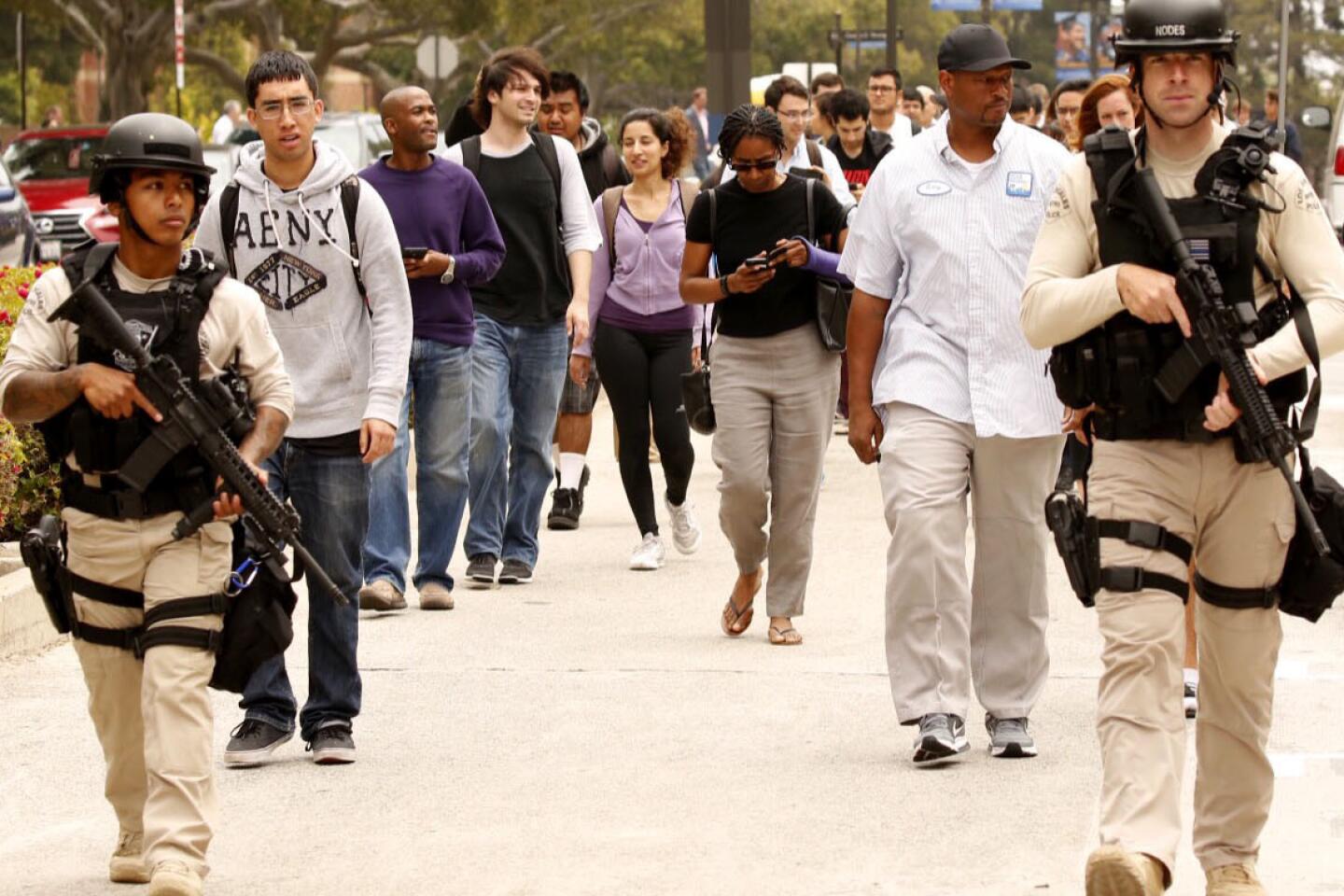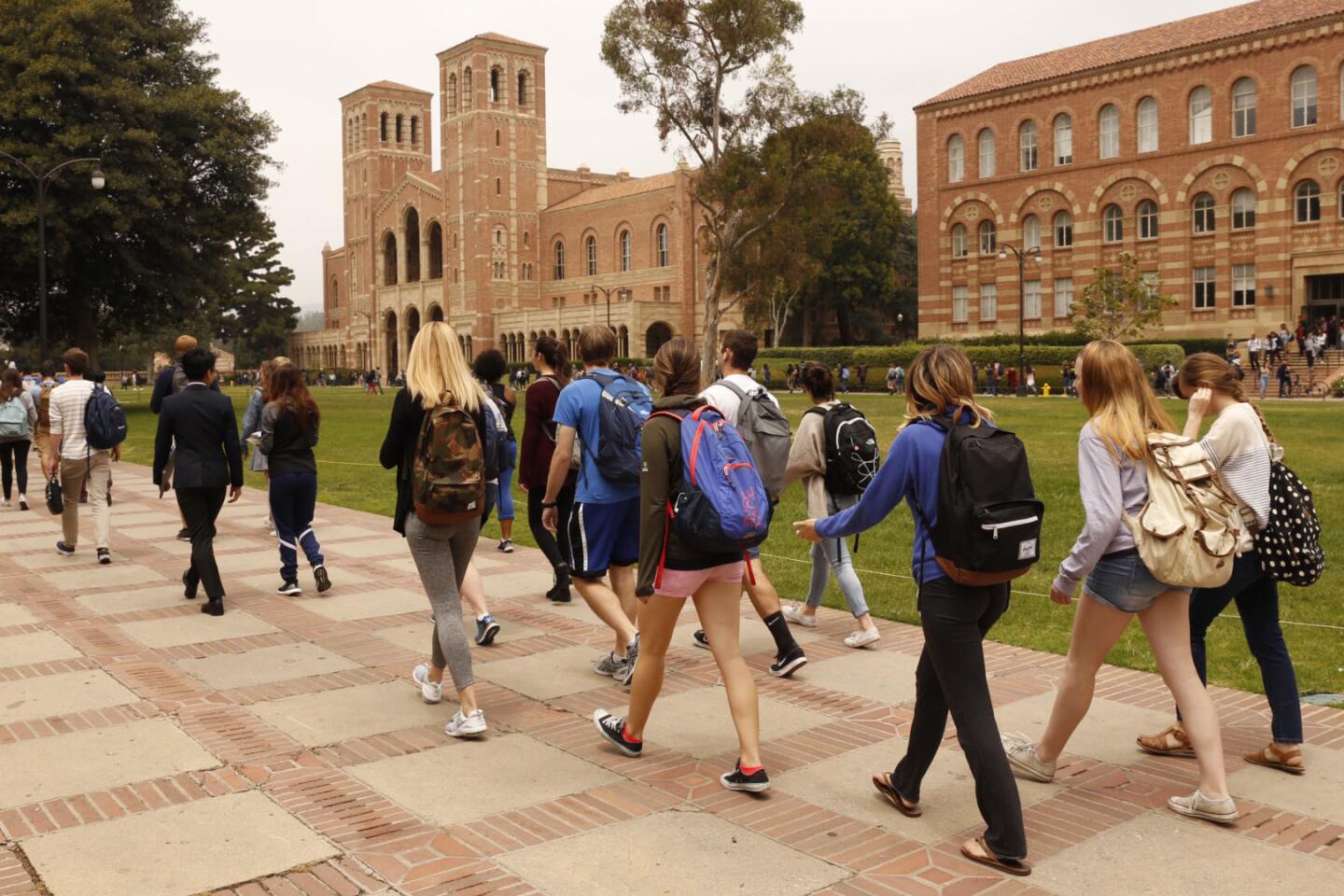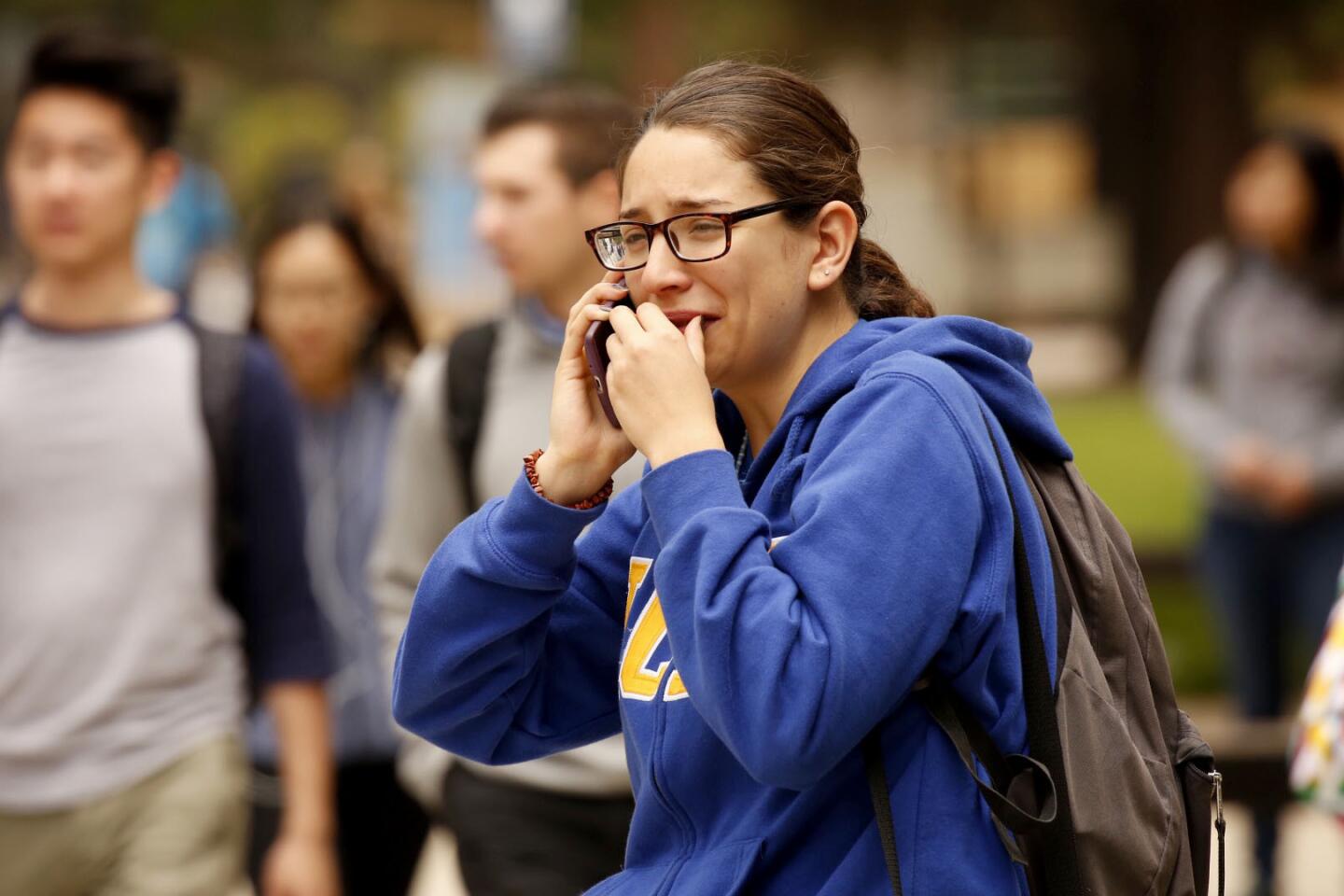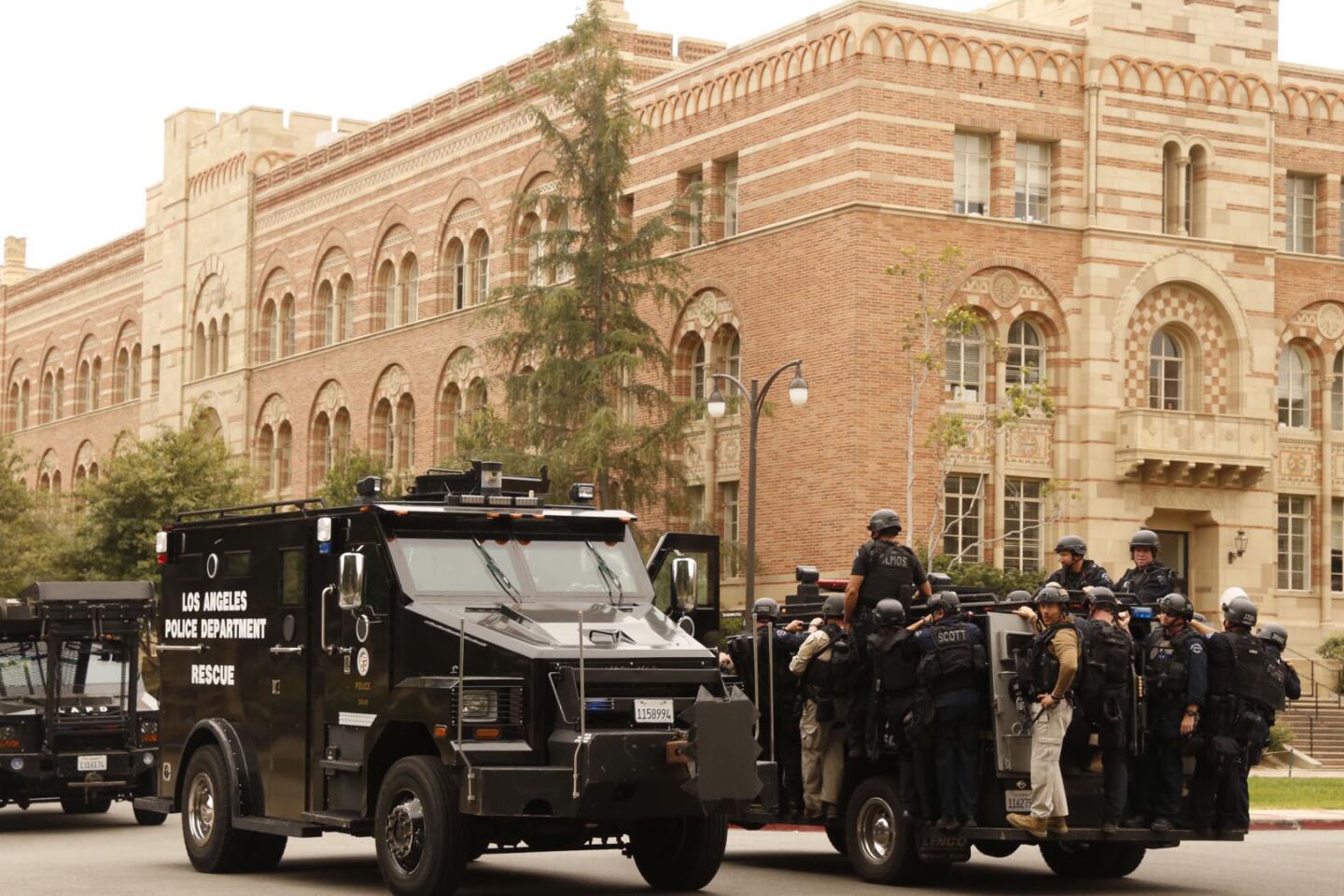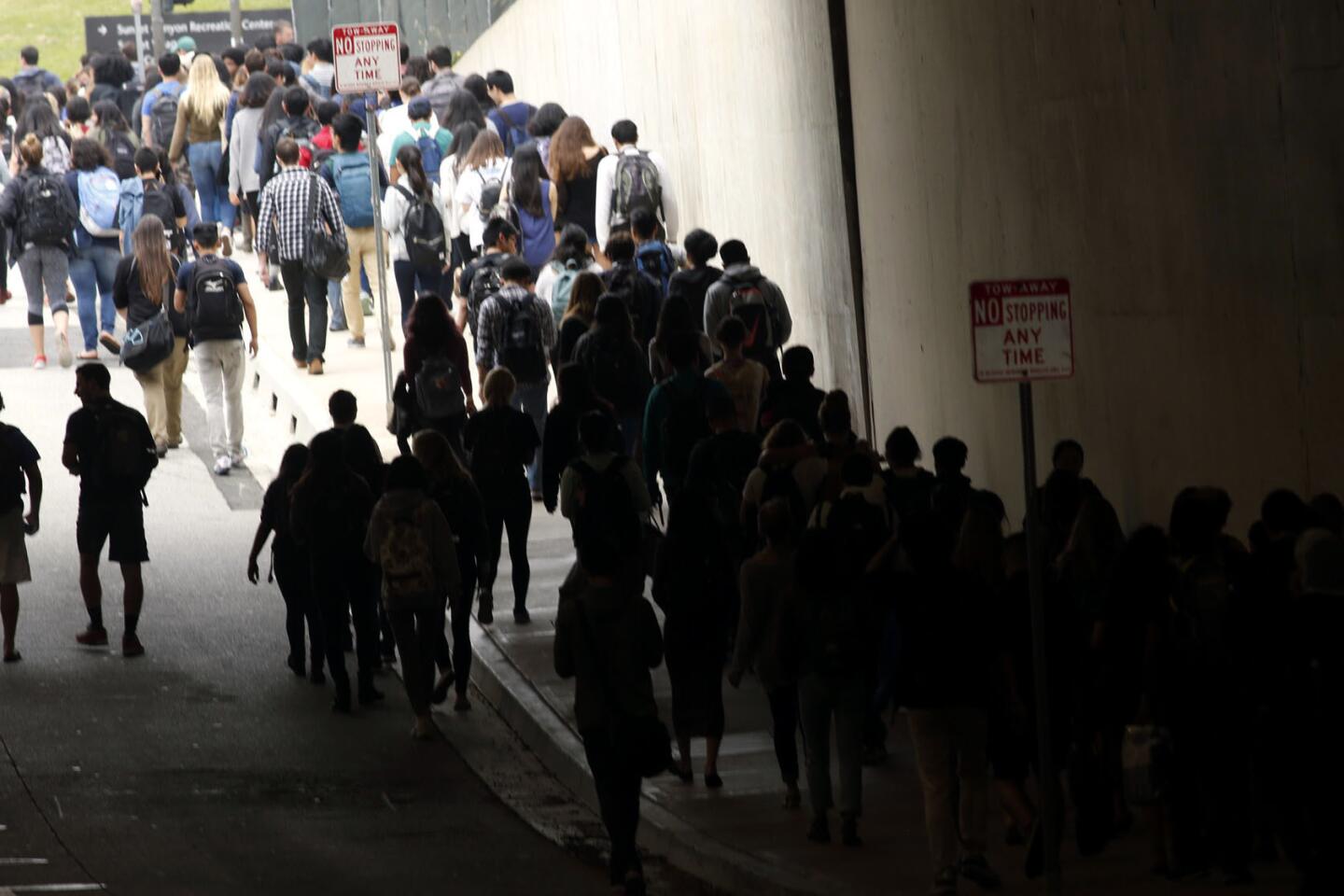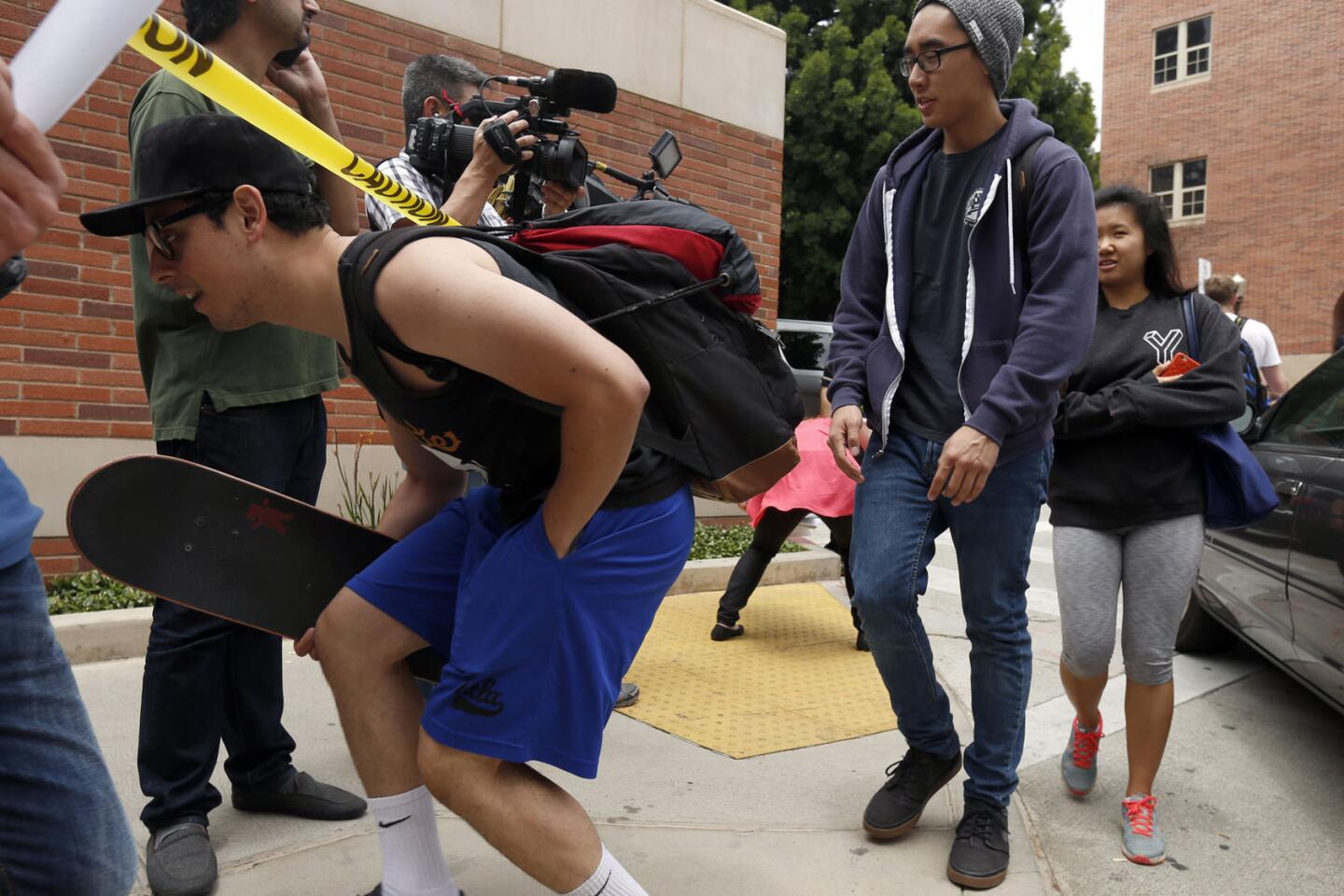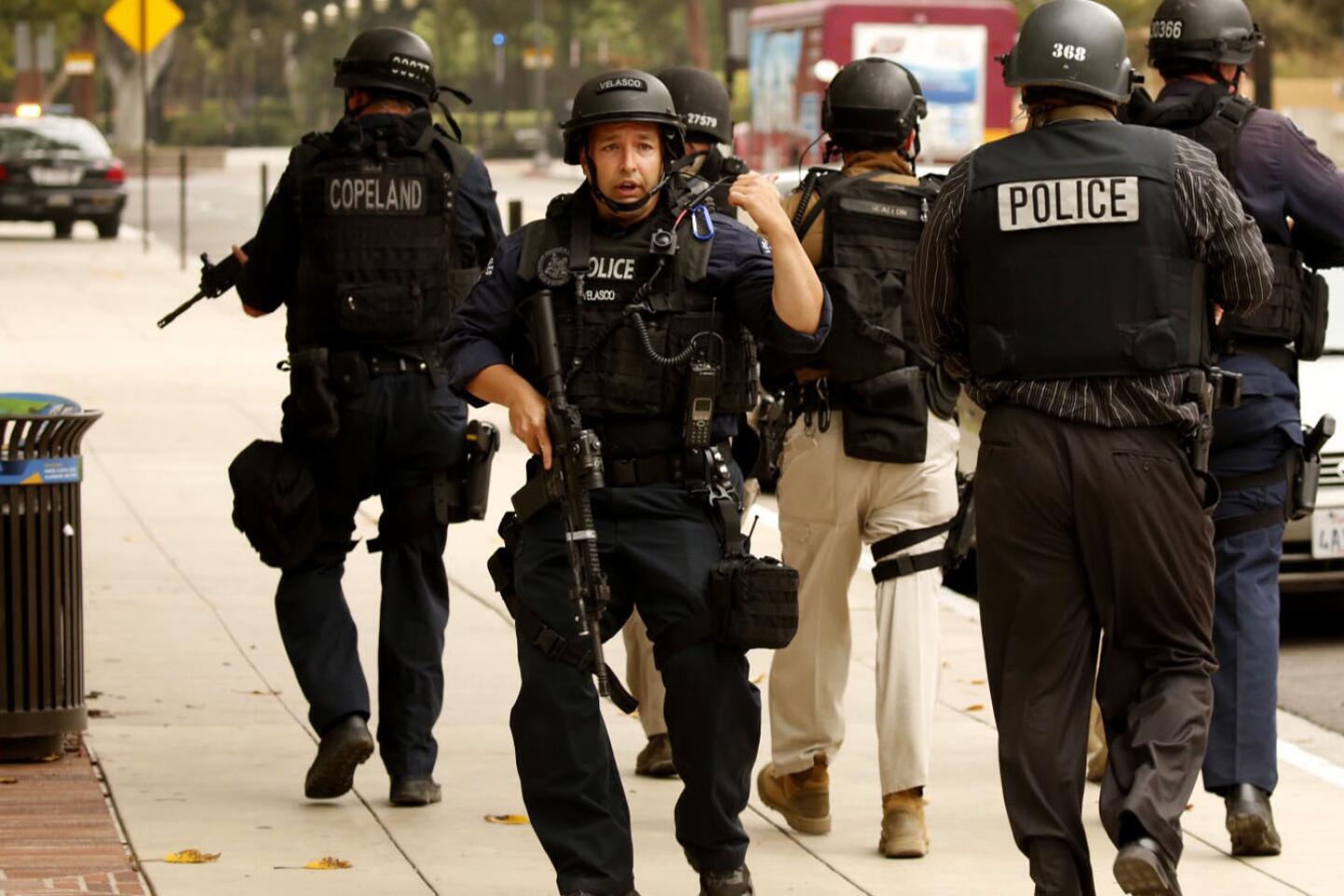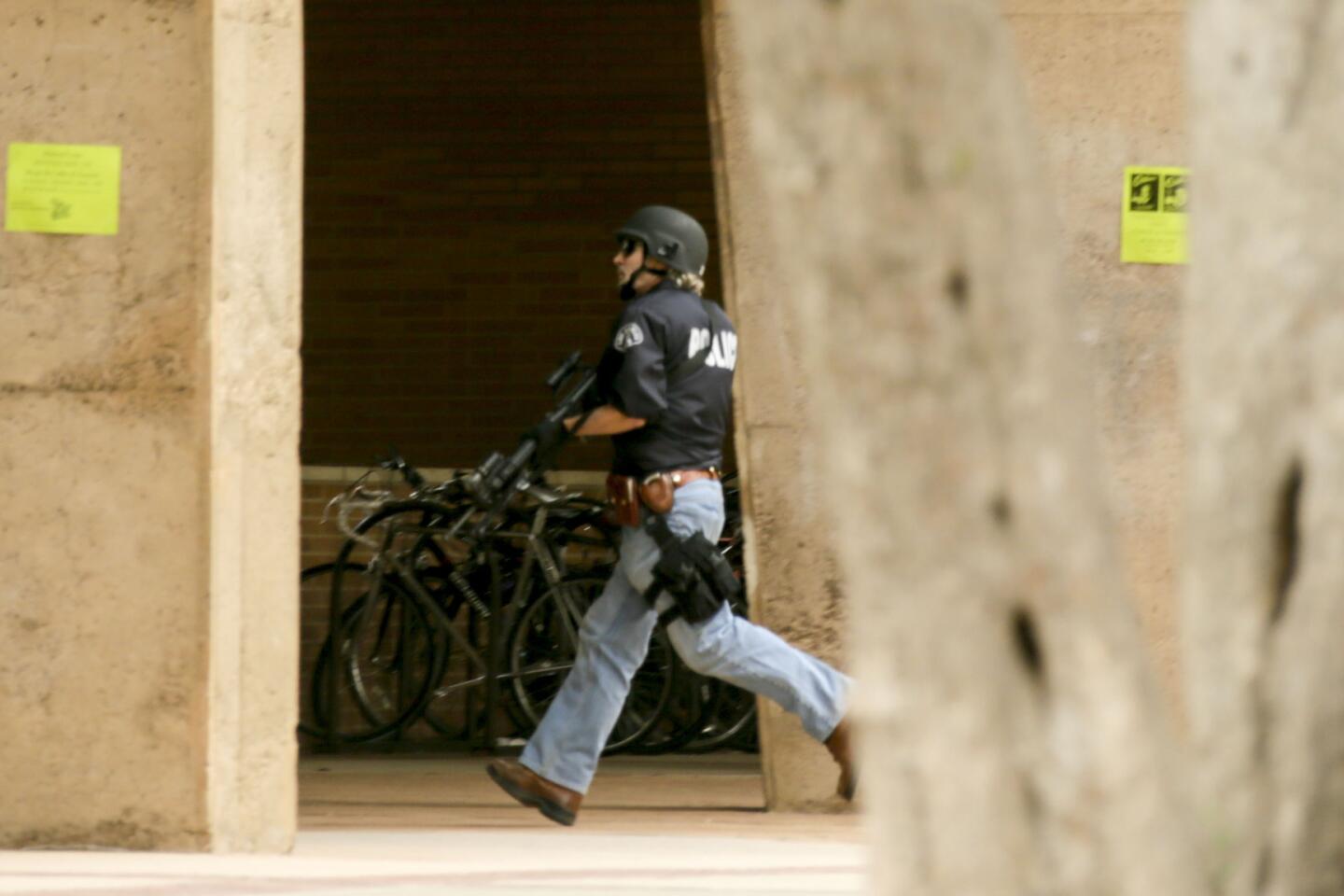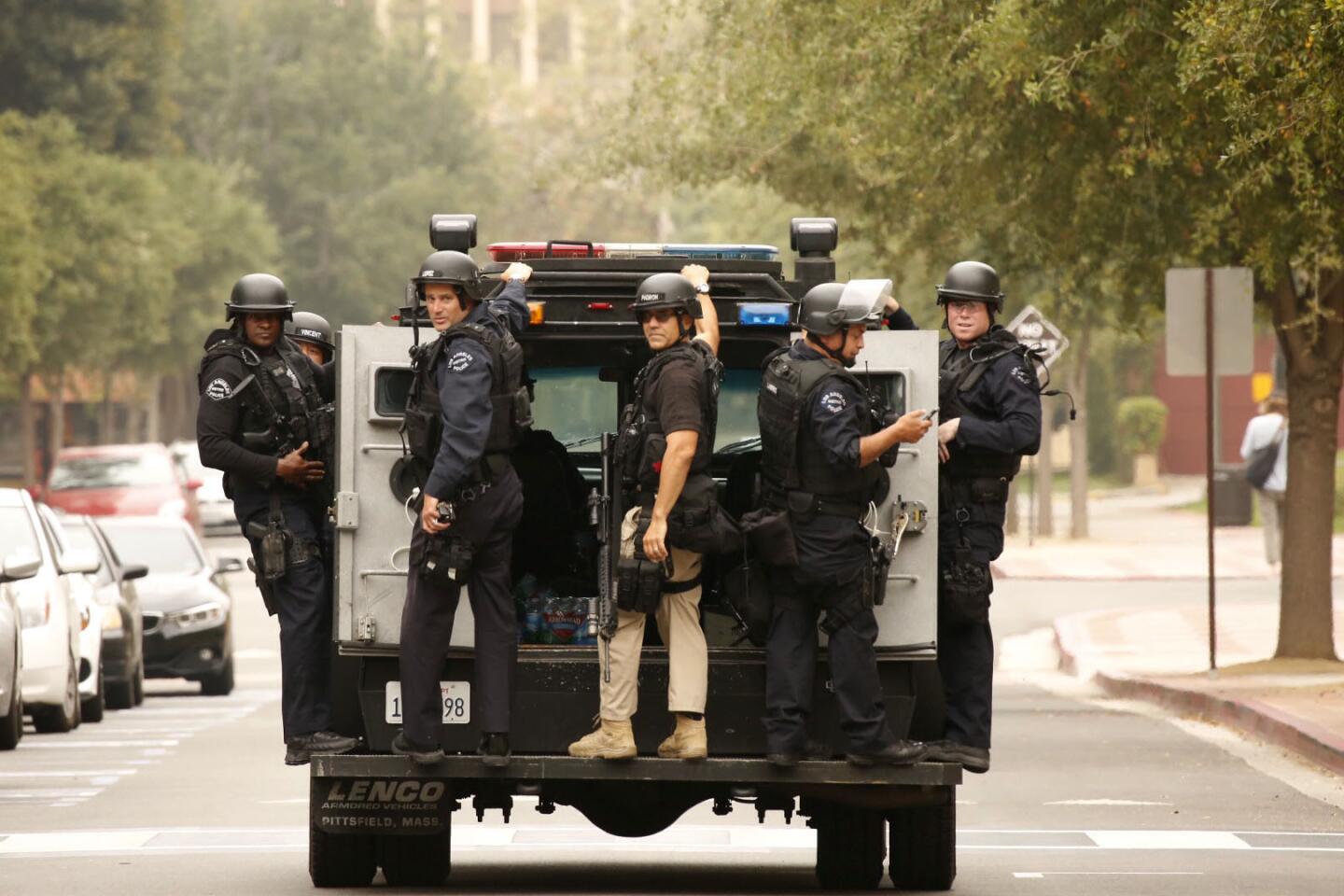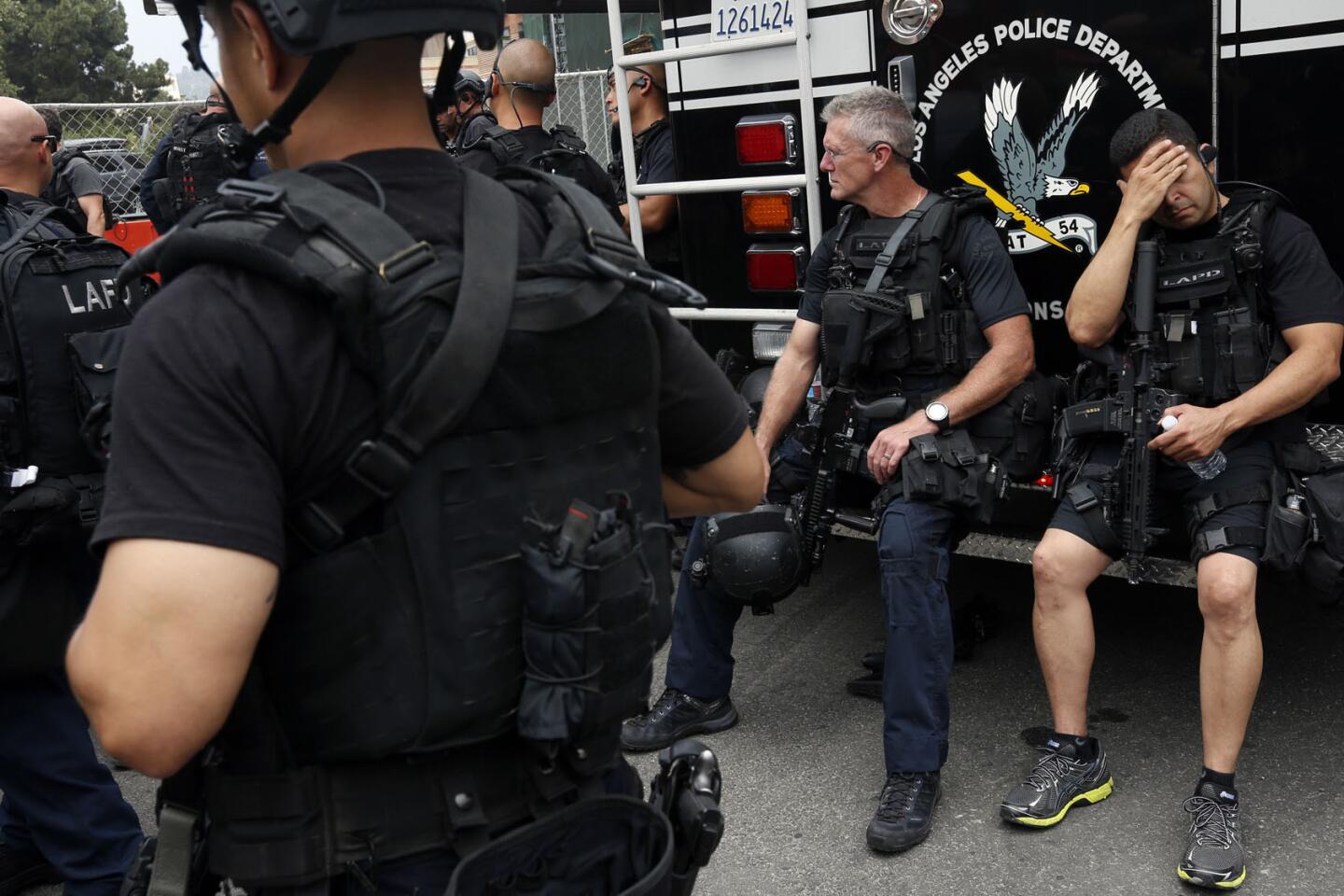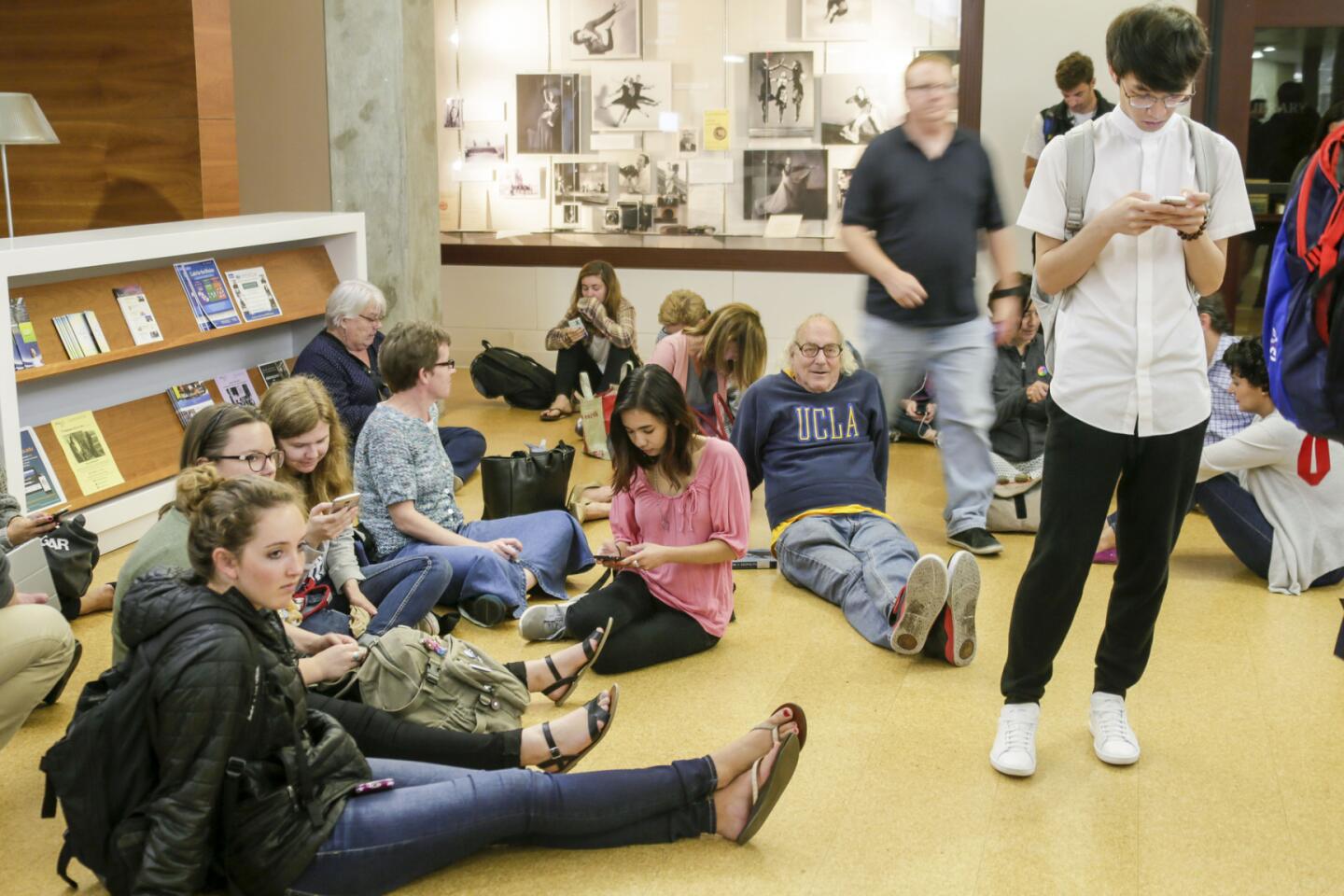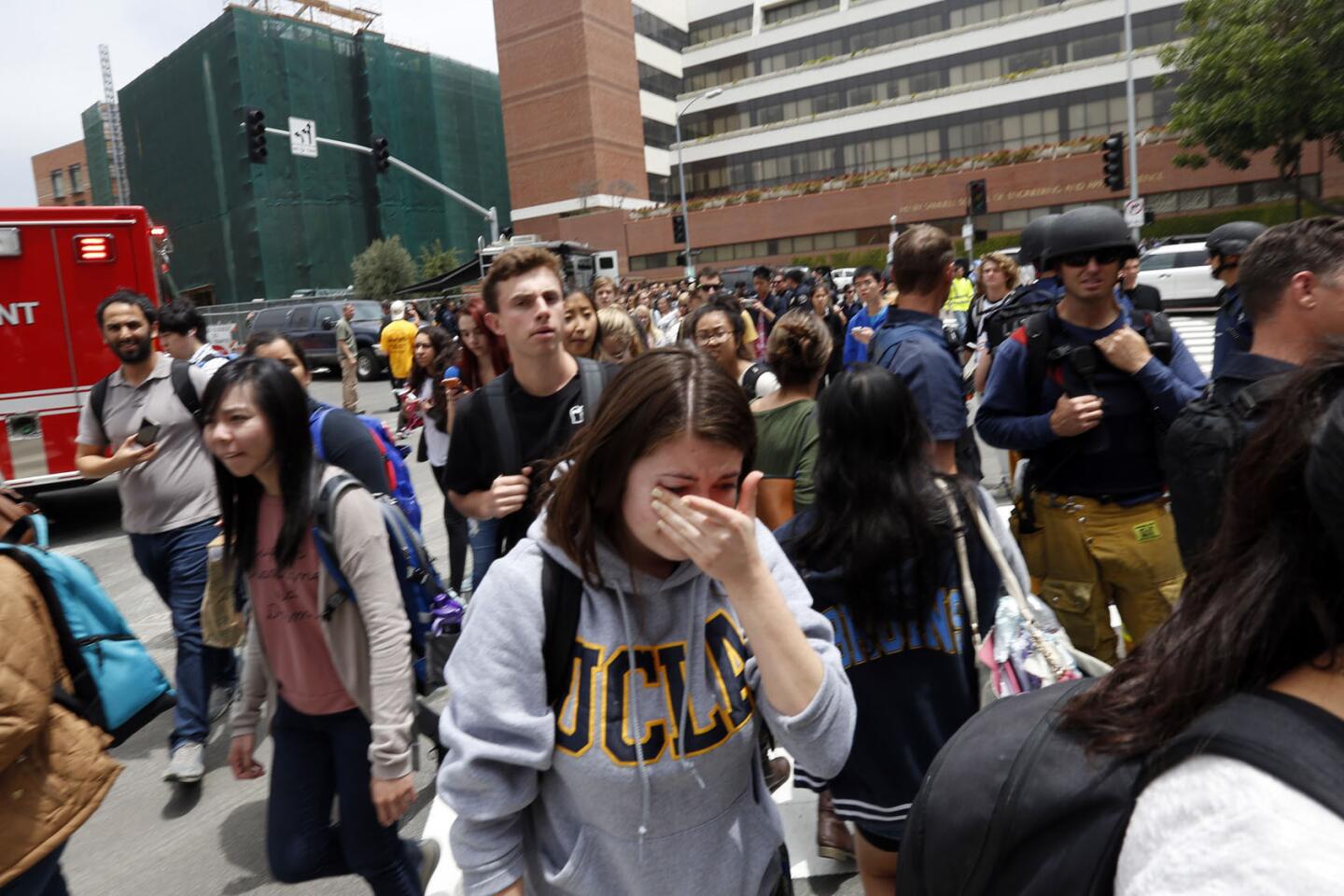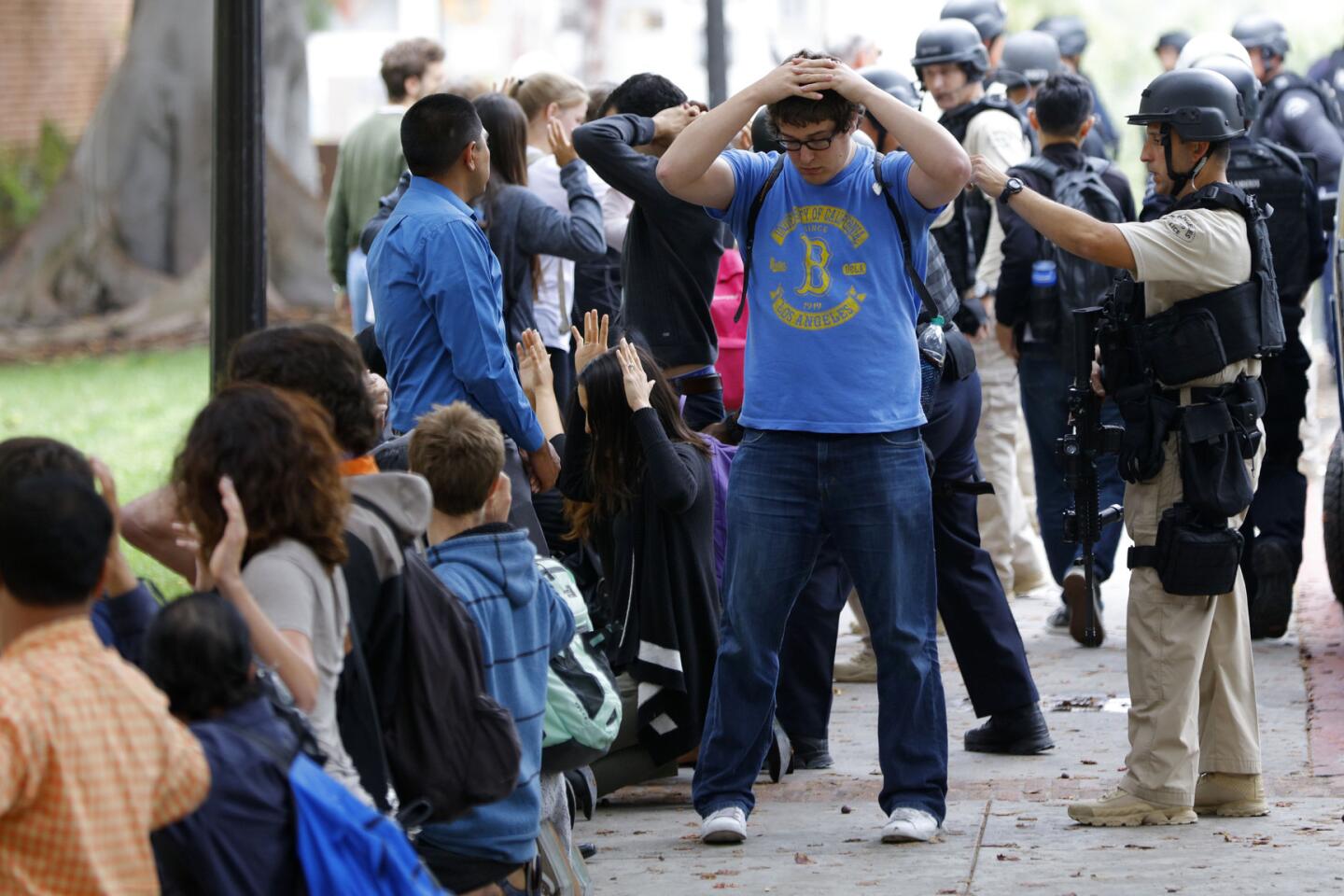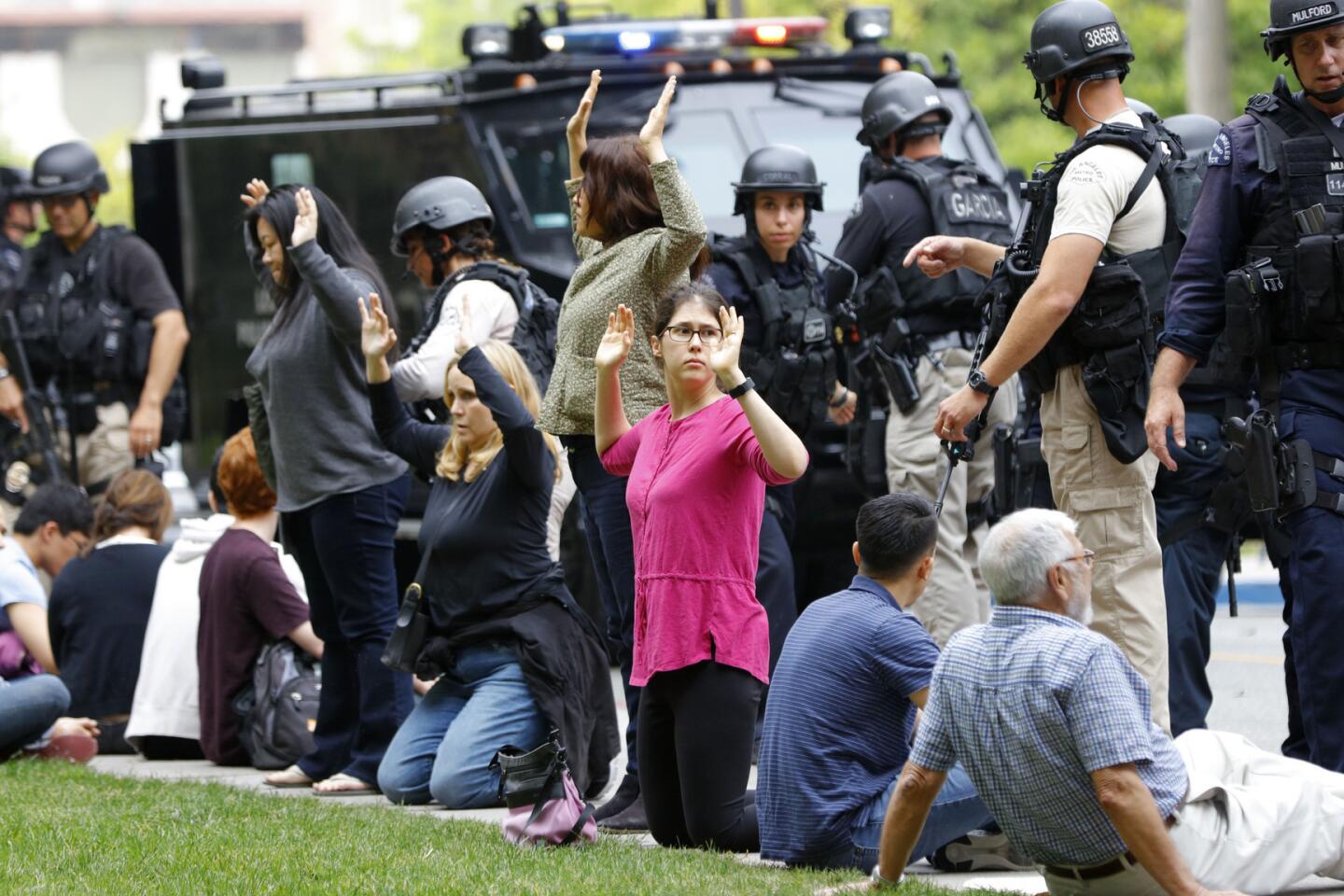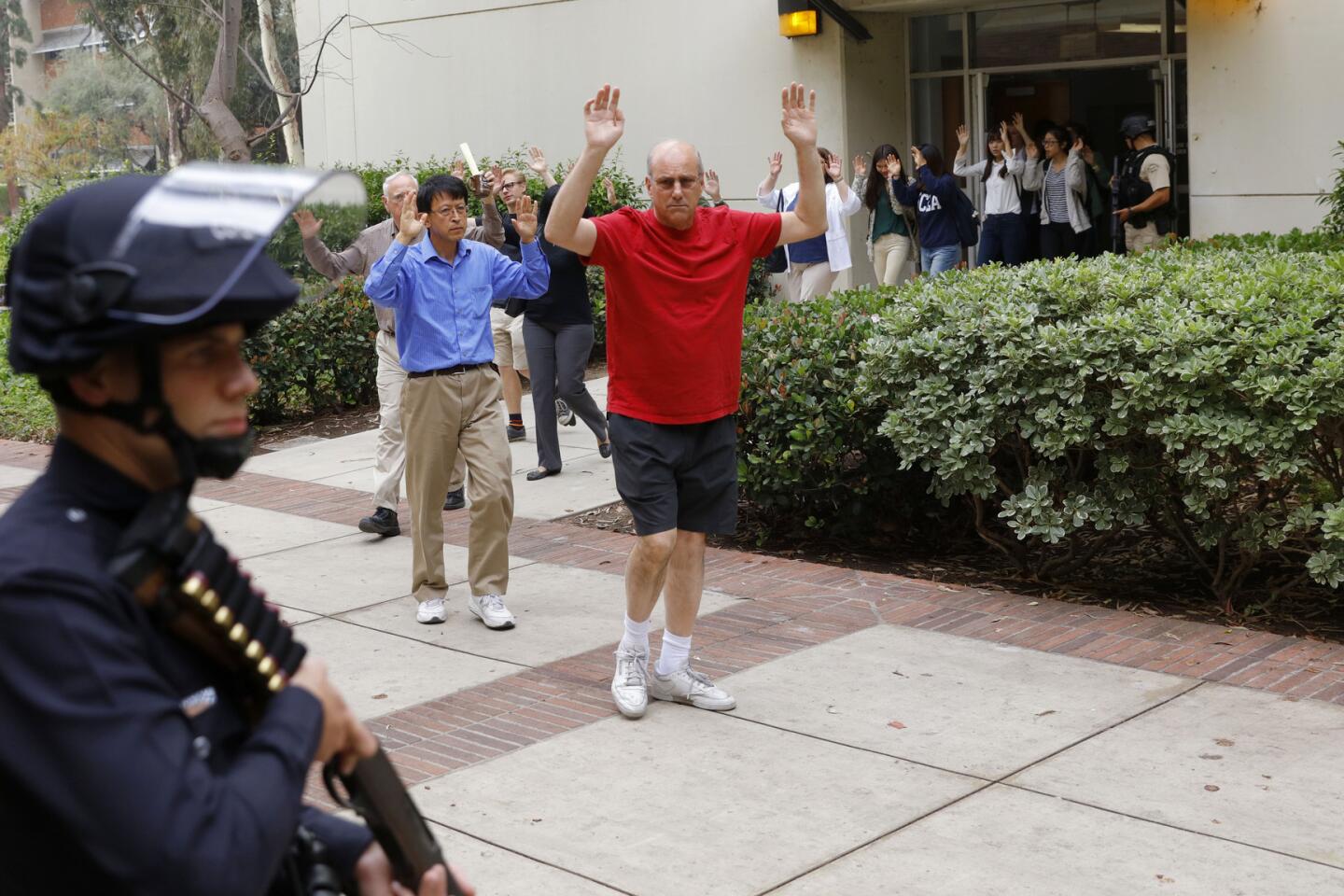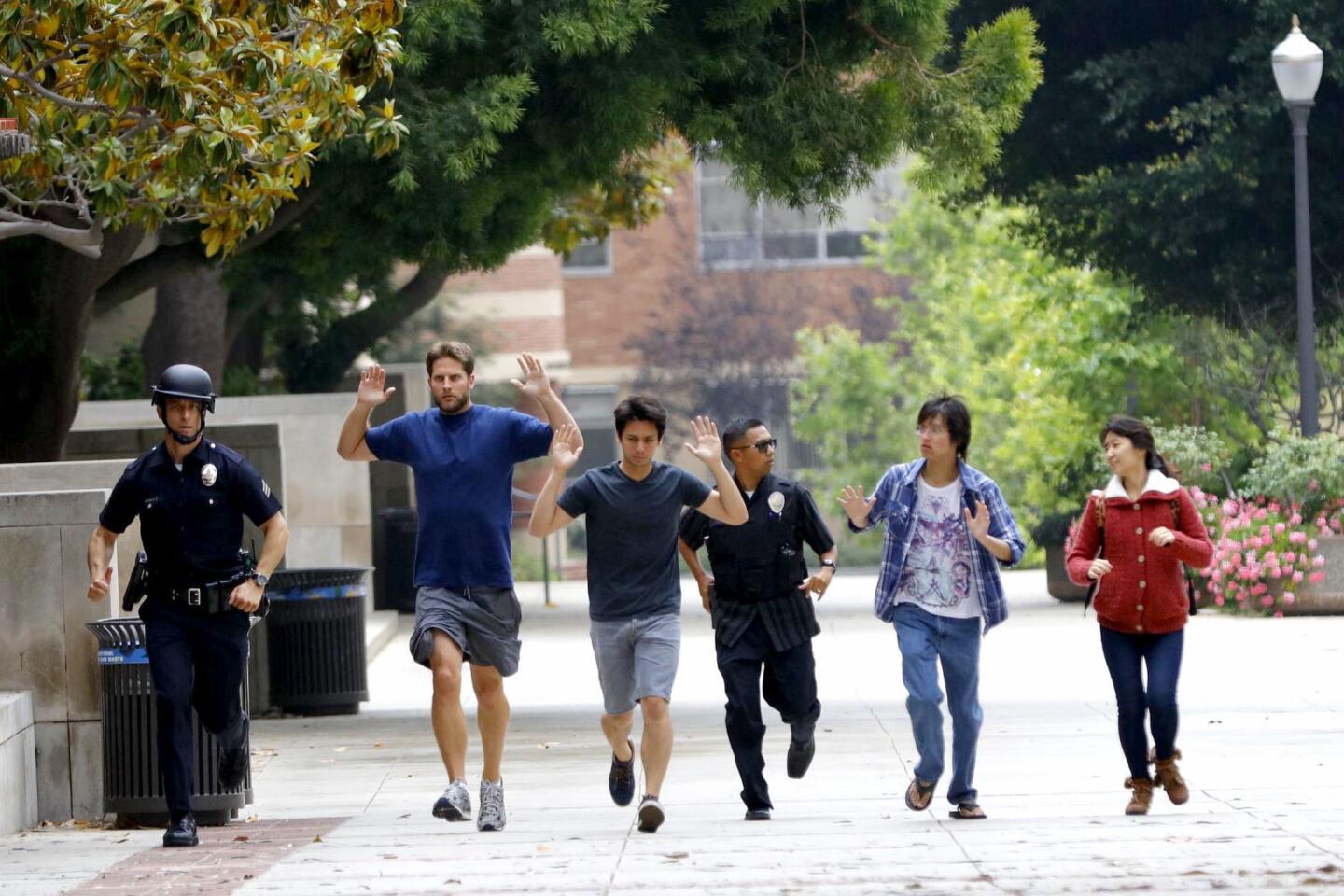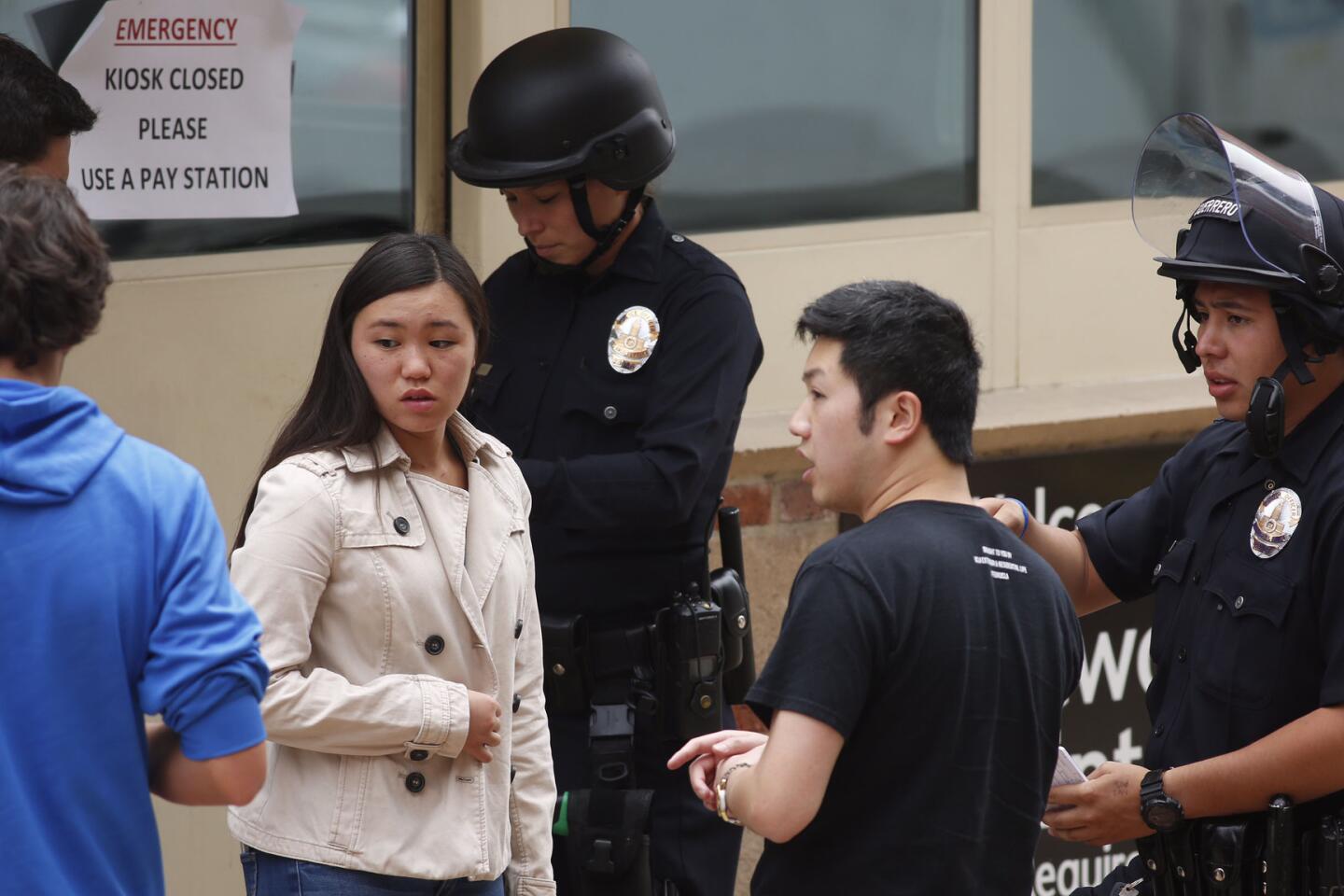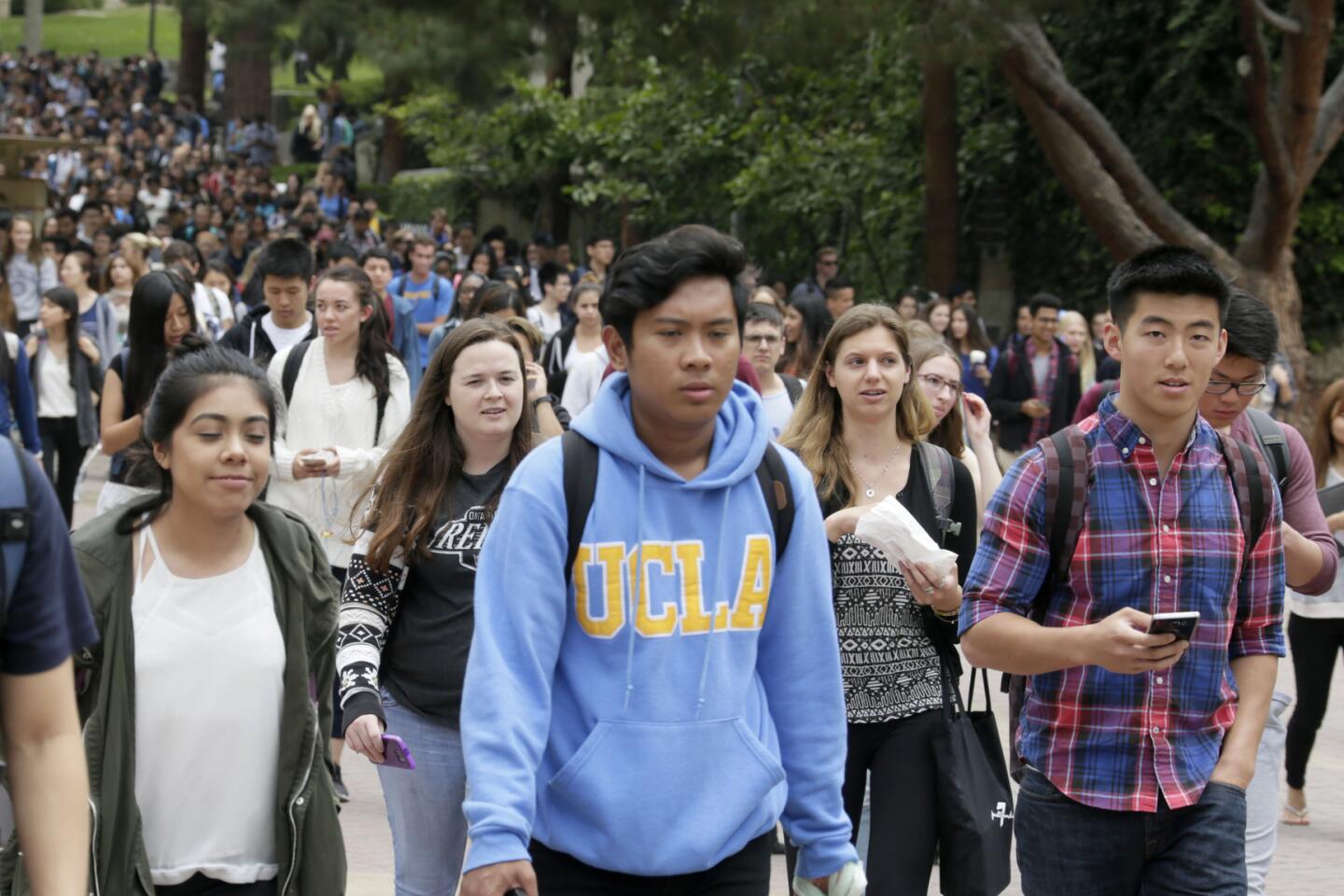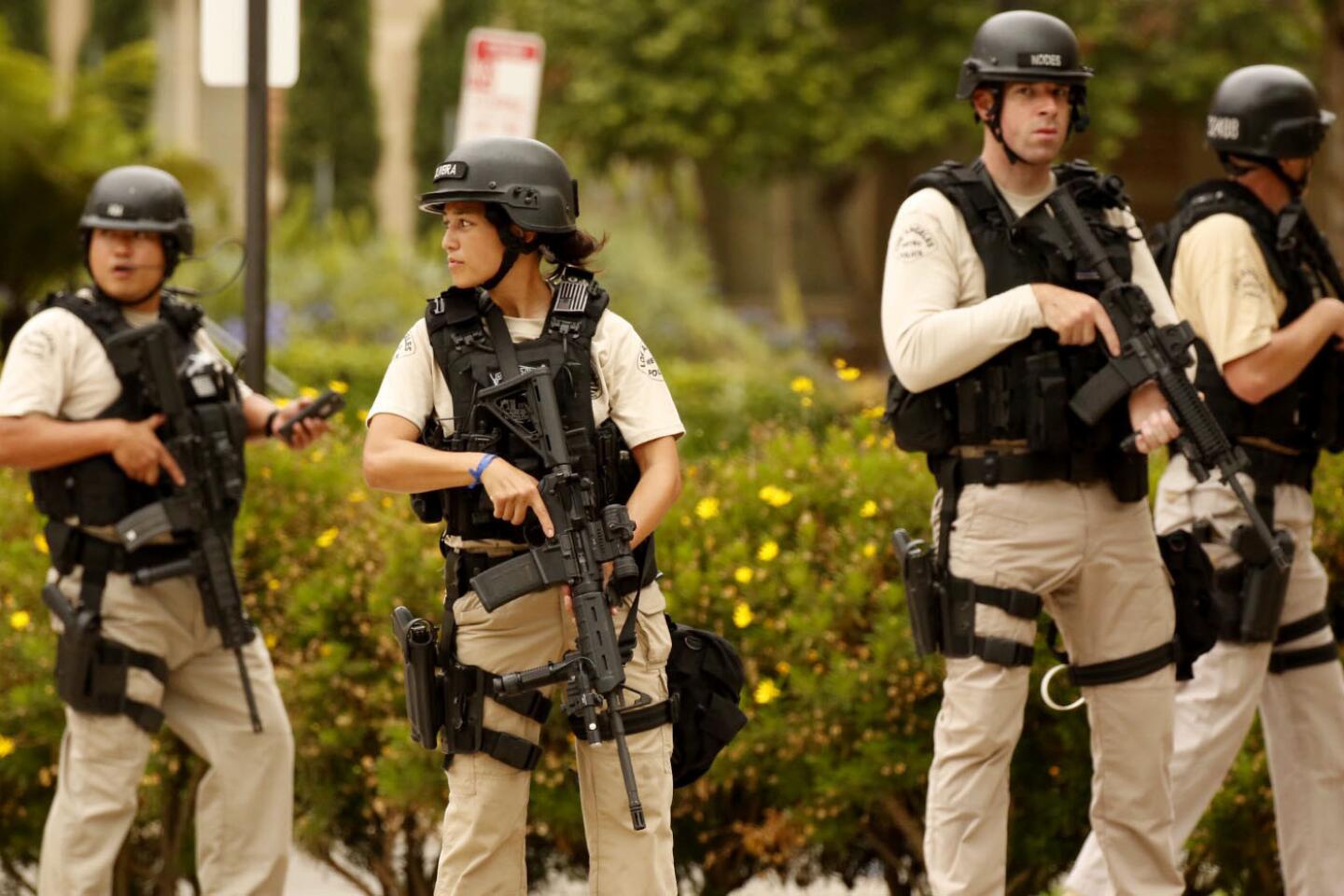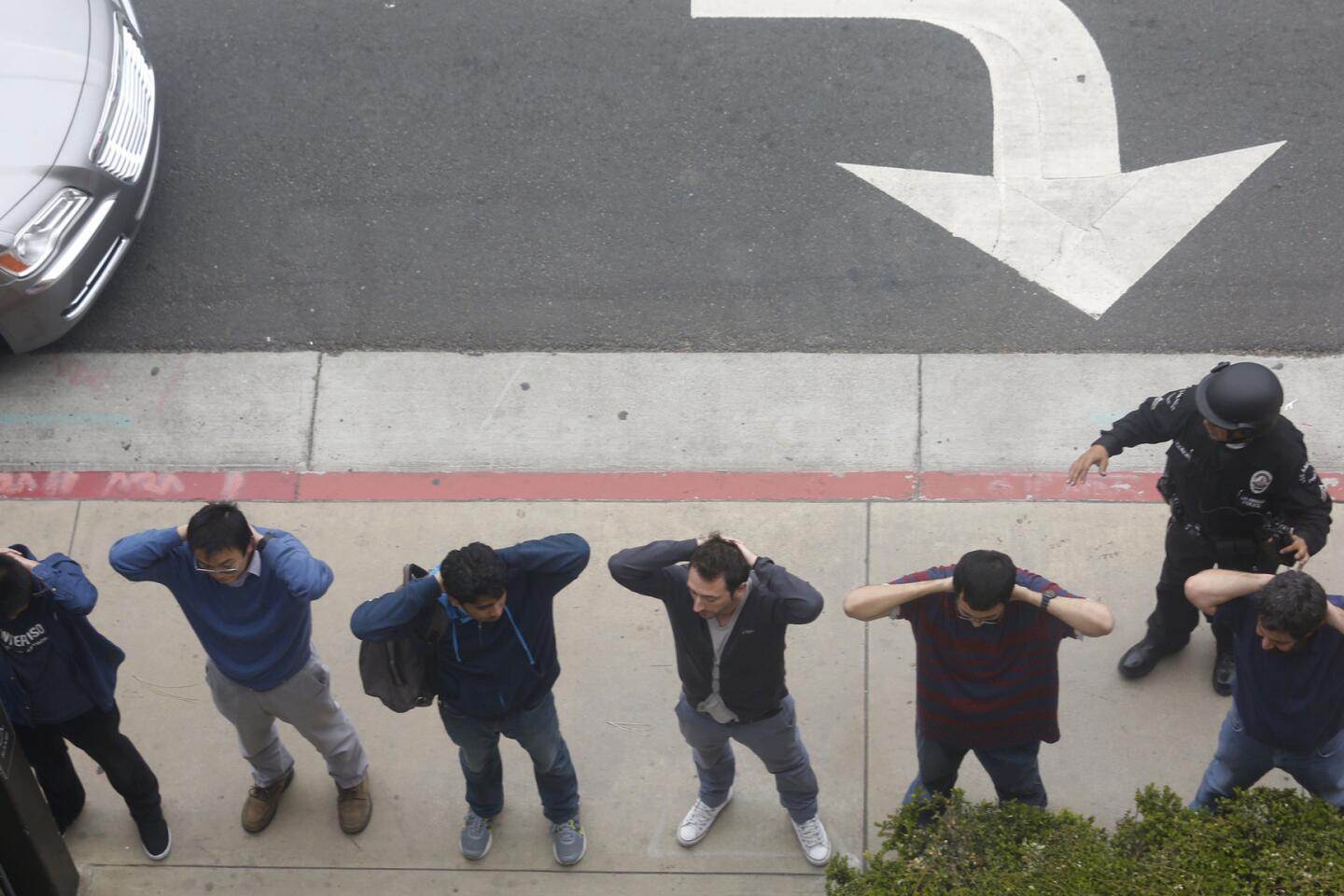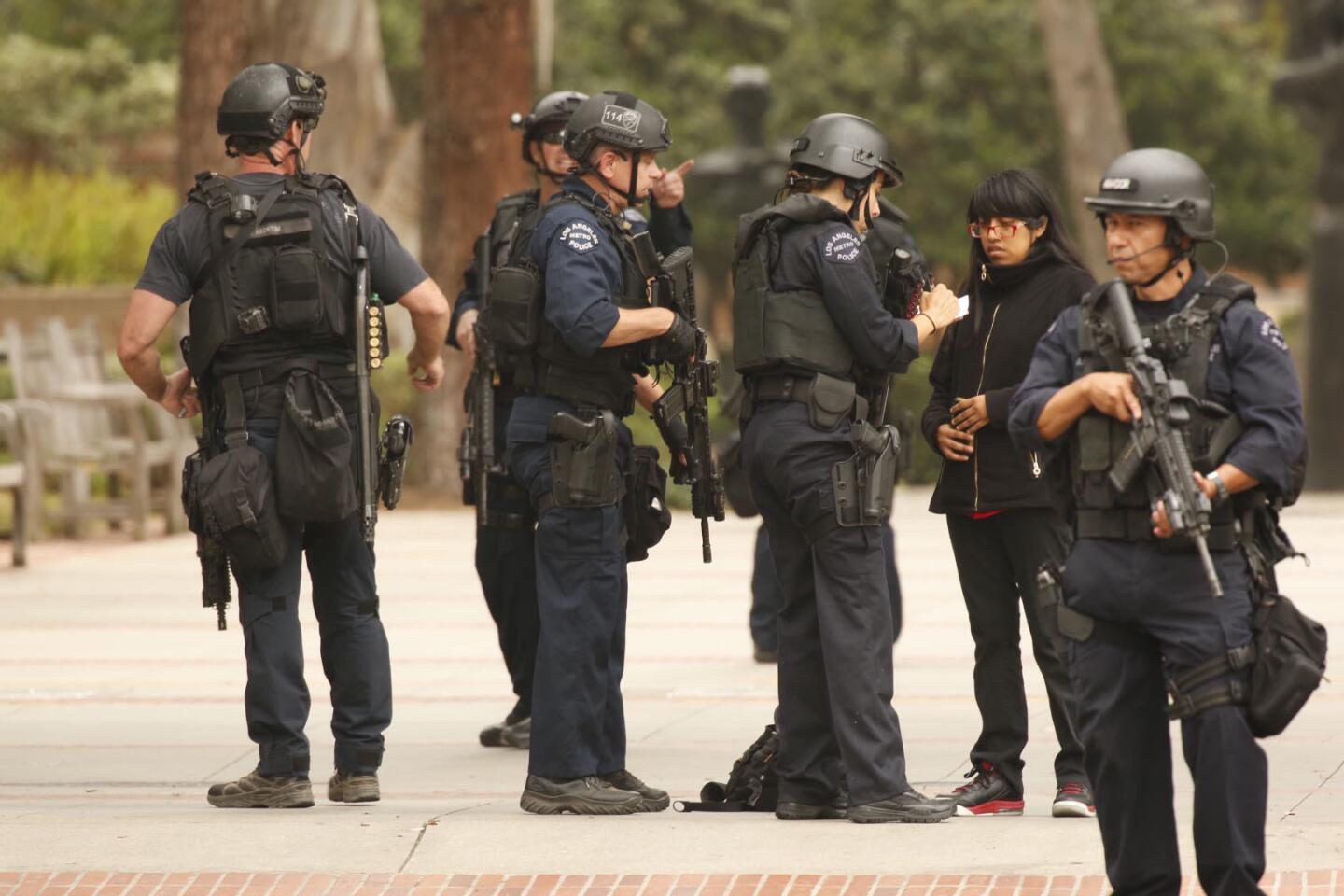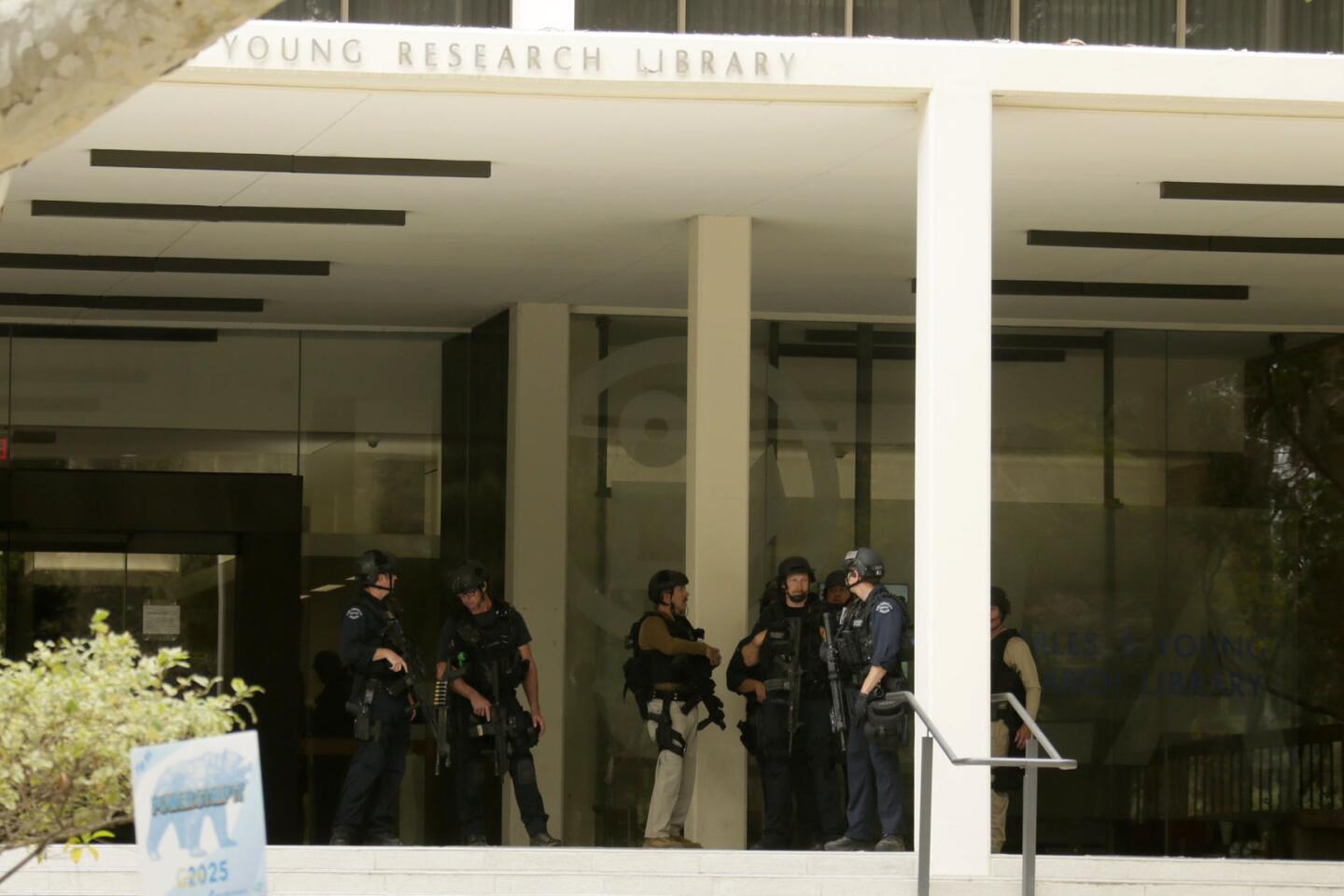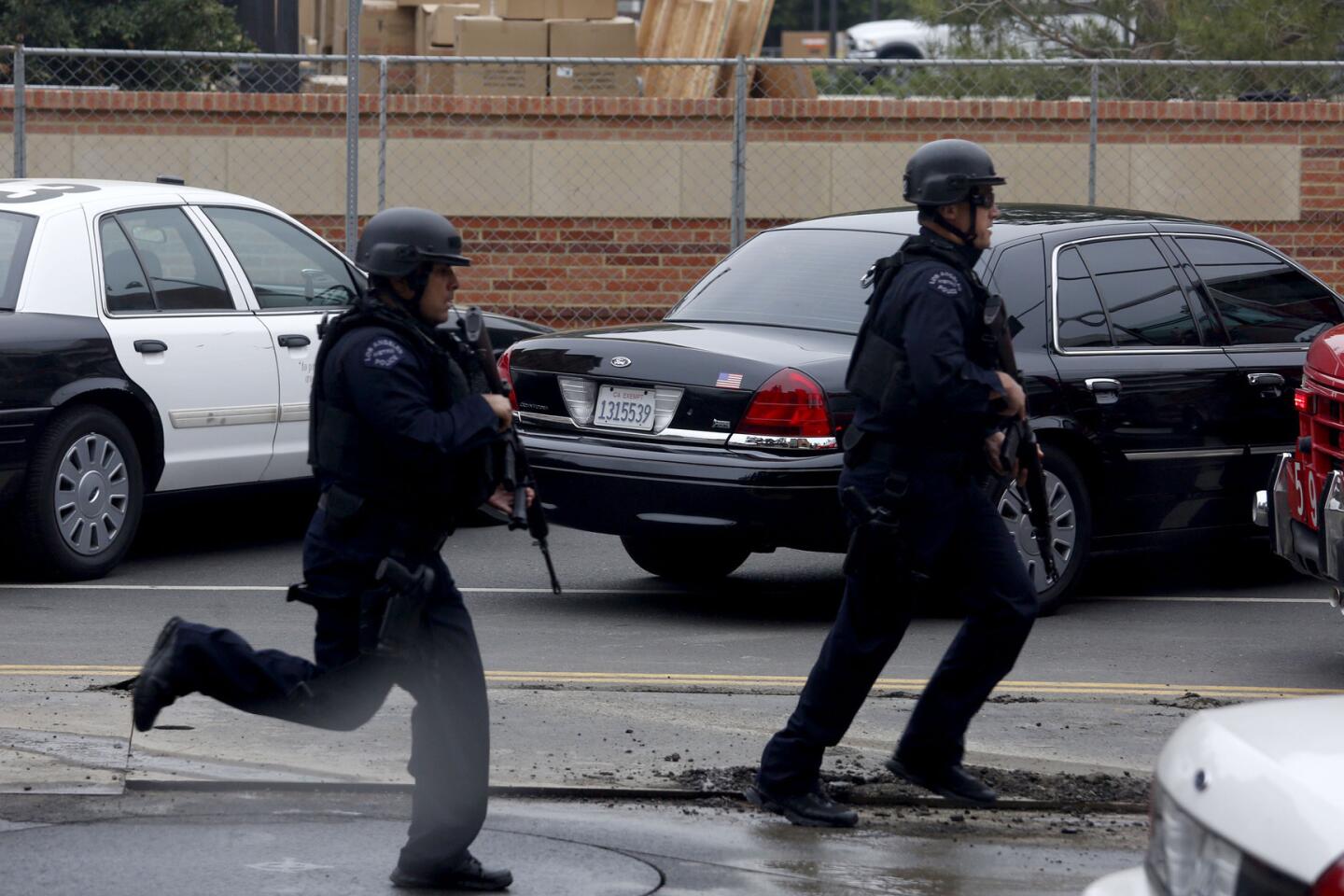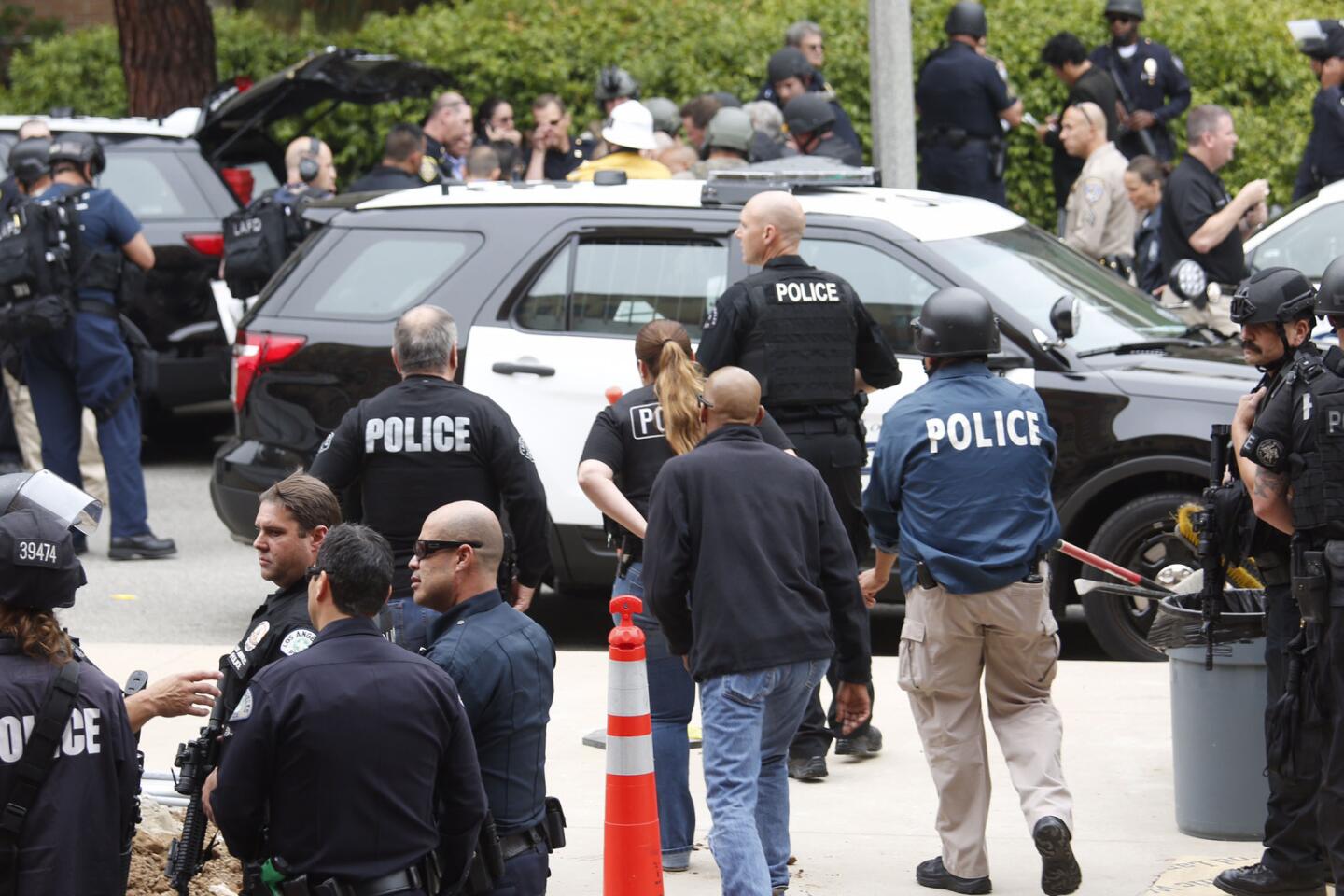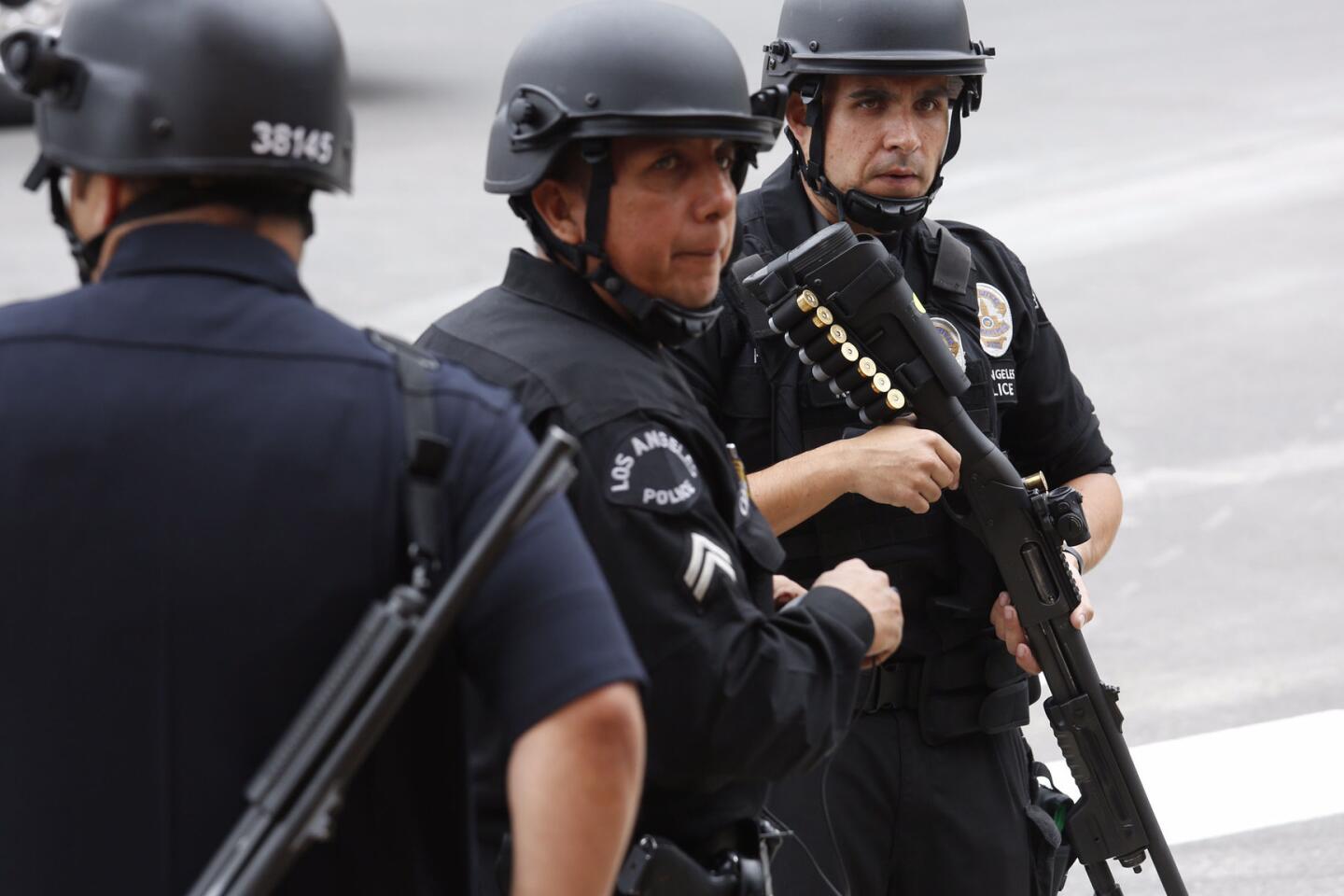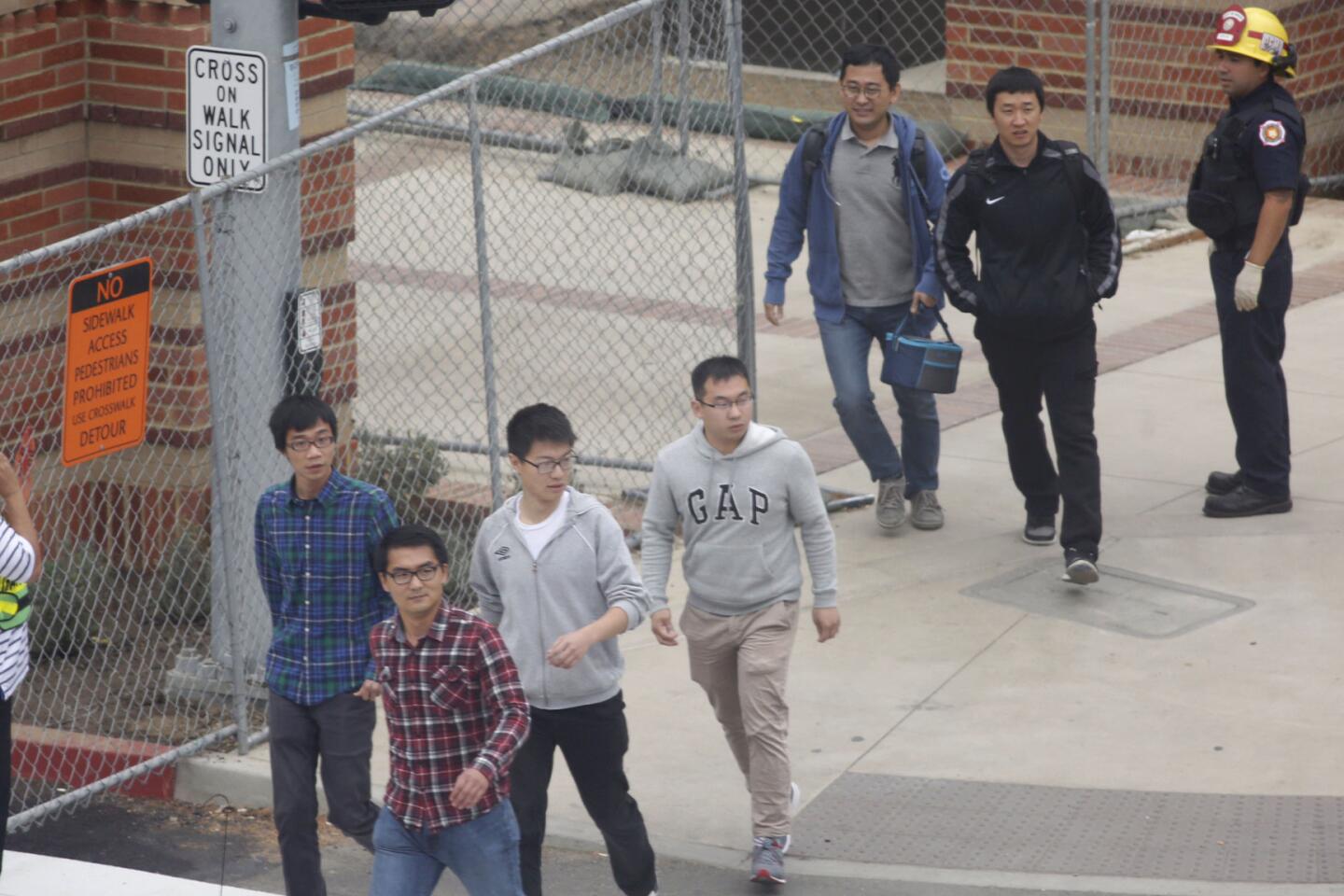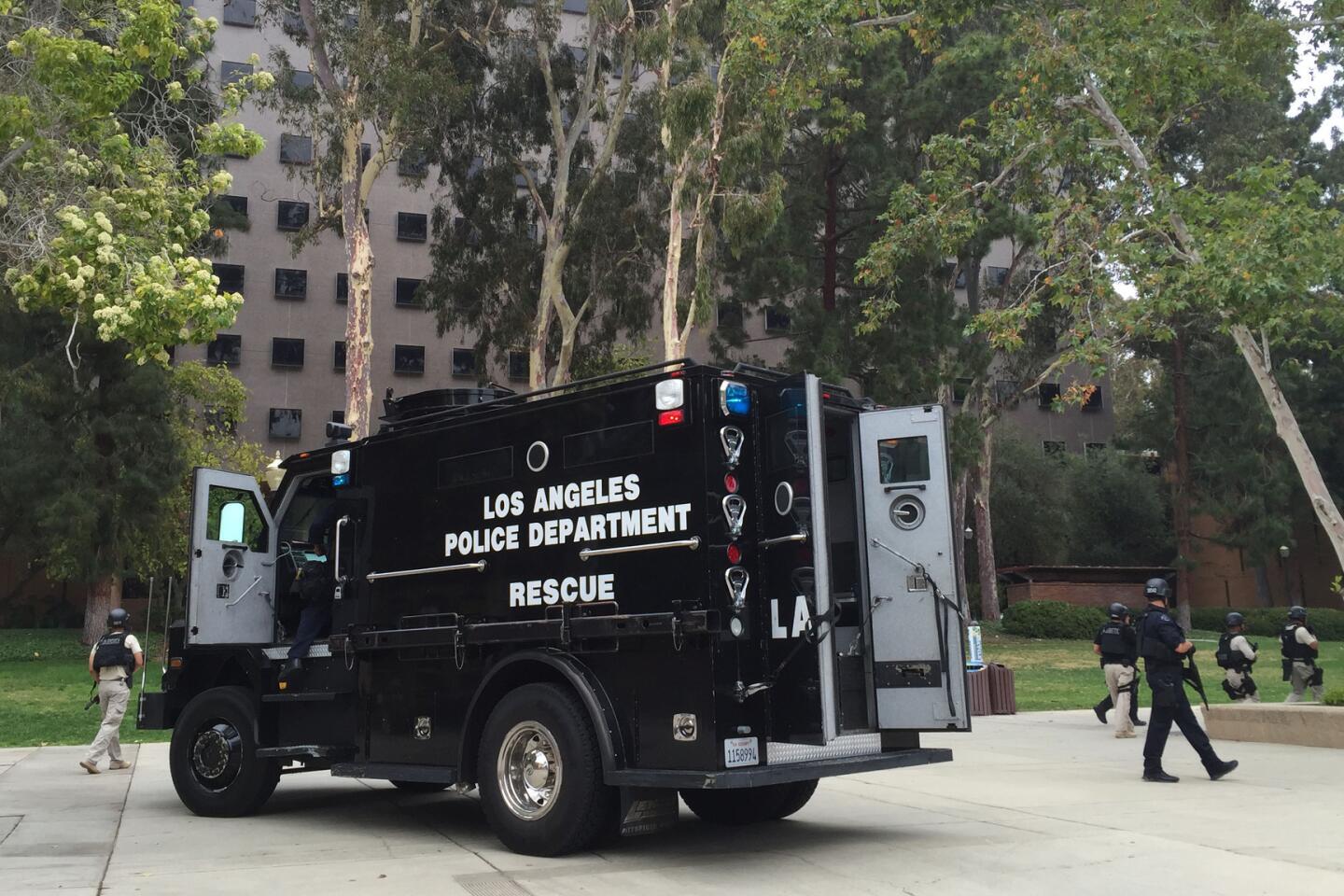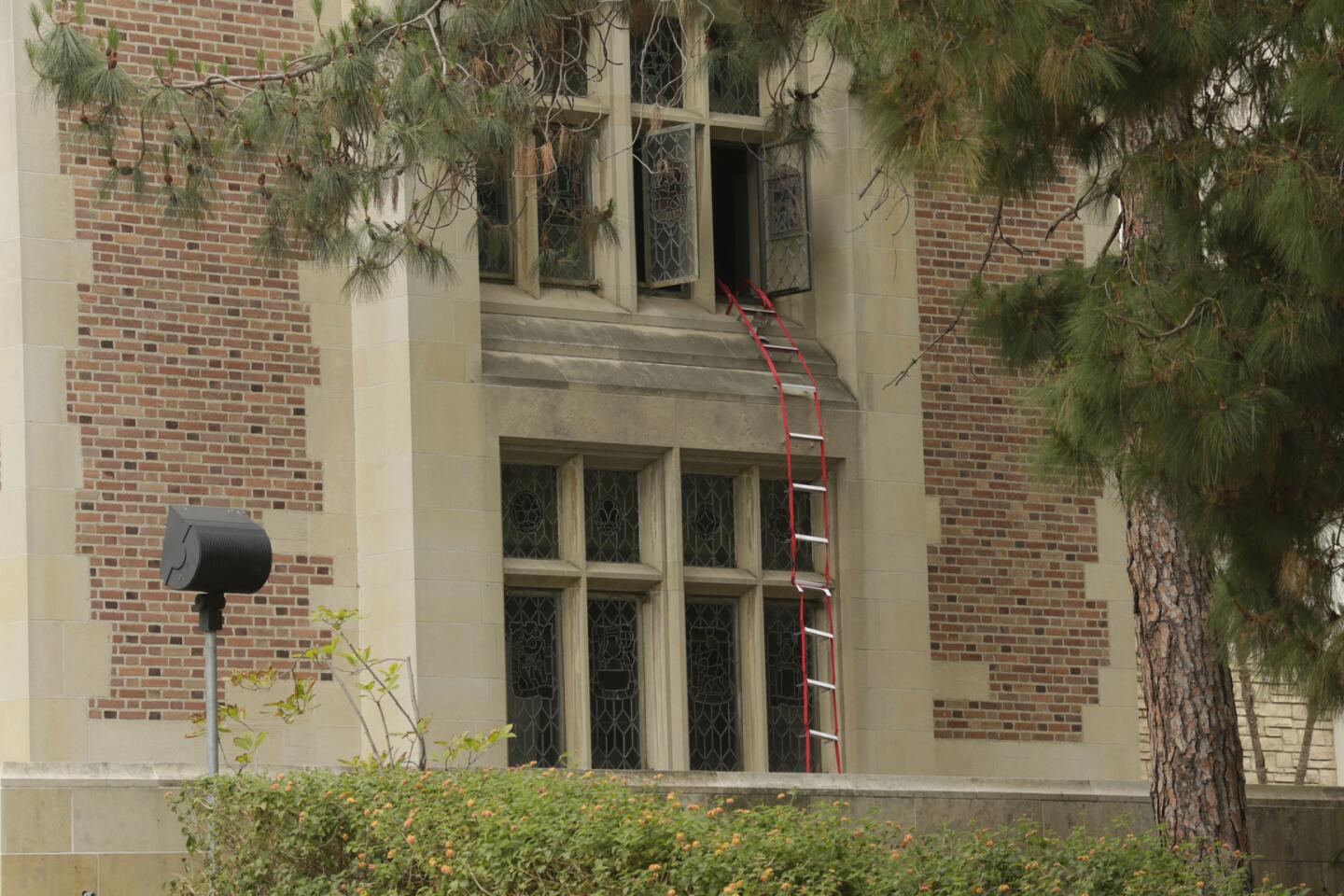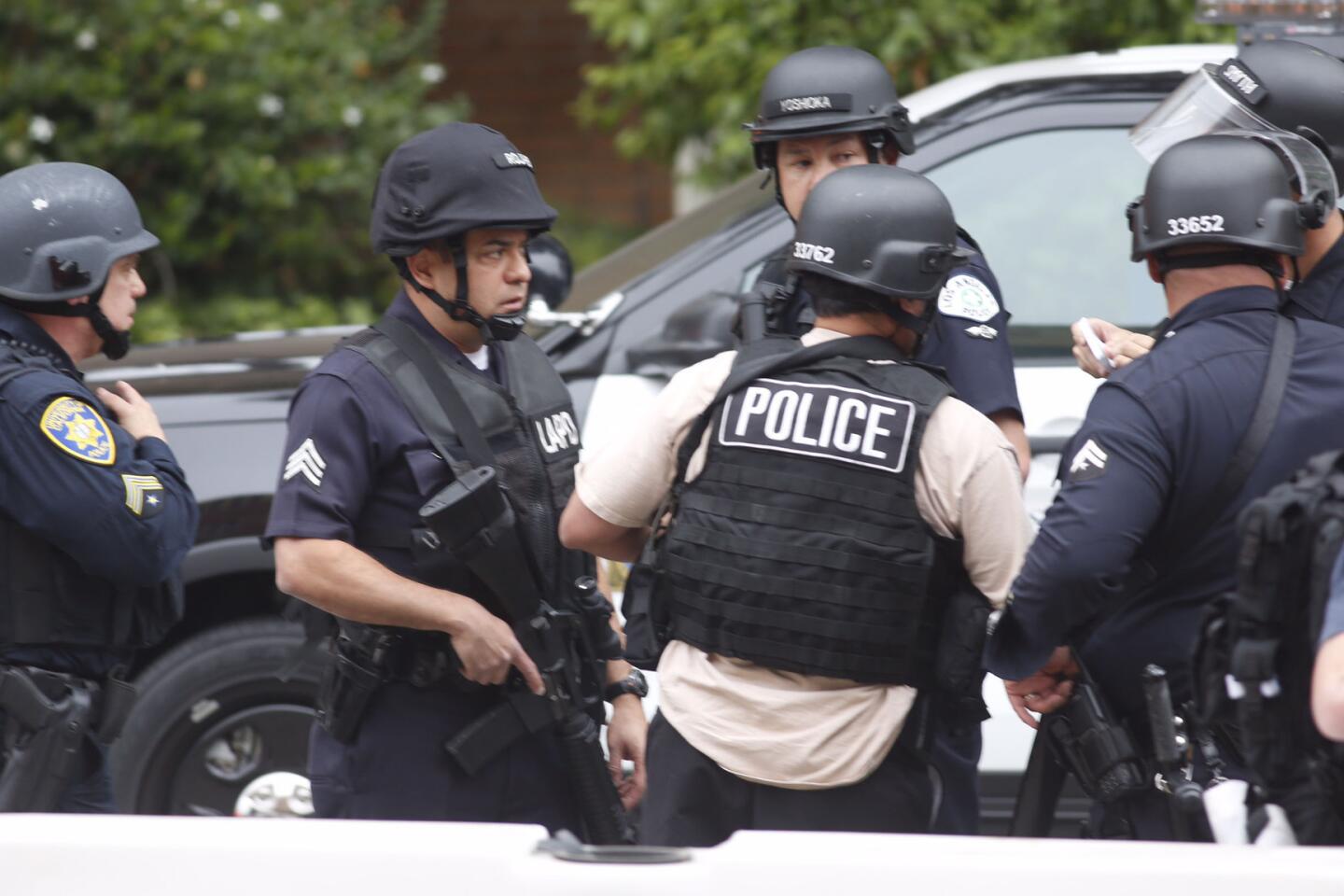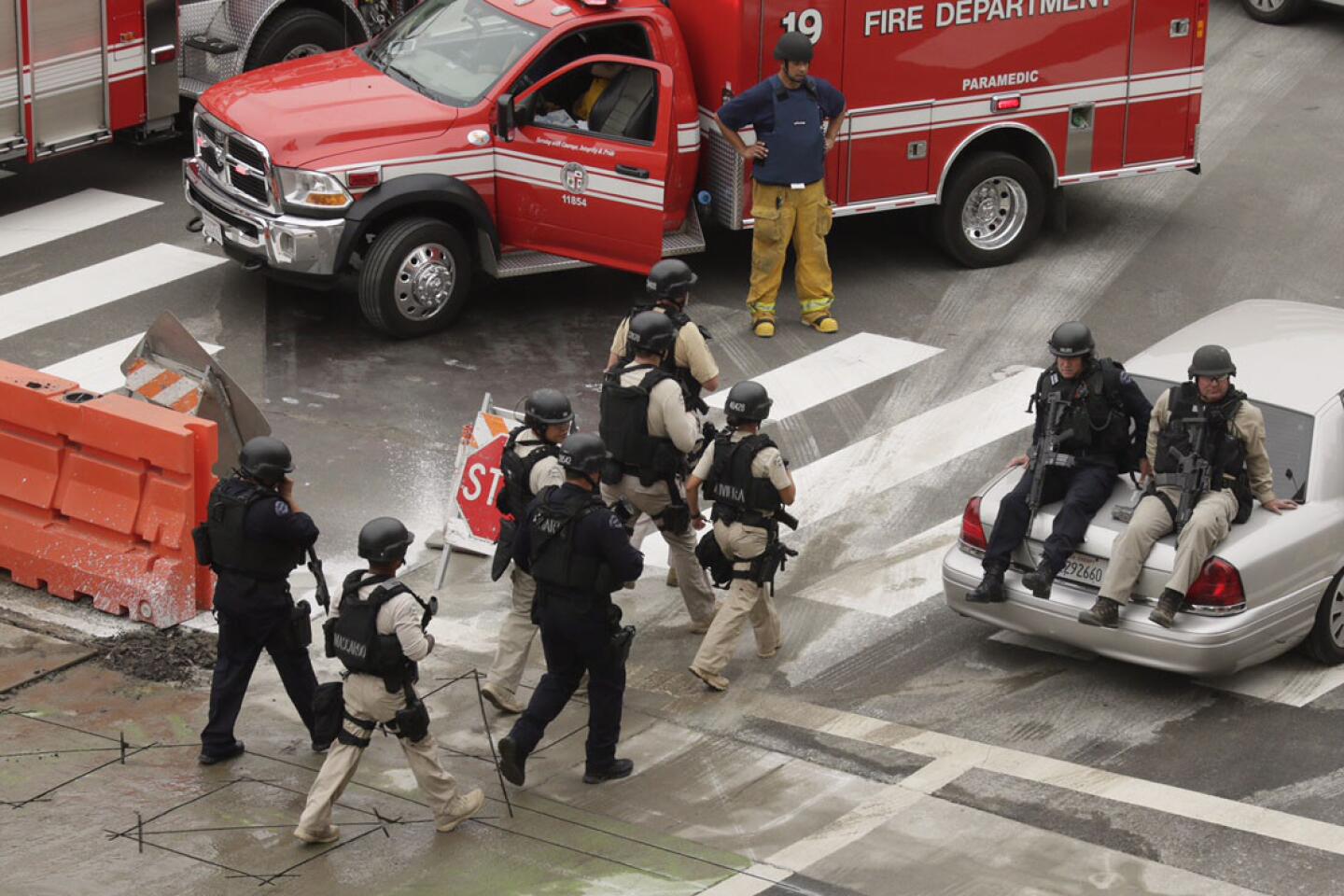Slain UCLA professor William Klug, father of two, praised as ‘great man’ by students
- Share via
William “Bill” Klug, a UCLA professor of mechanical and aerospace engineering, was insatiably curious about the way complex things worked — cancer cells, the HIV virus, the tissue in a beating heart.
Klug was said to be brilliant. He was said to be kind.
“If you asked who is the nicest professor at UCLA, many would say William Klug,” said Alan Garfinkel, a professor of integrative biology and physiology.
Full Coverage: Shooting at UCLA >>
On Thursday, Klug was said to be greatly missed.
Klug, 39, was shot and killed in his office in UCLA Engineering Building 4 on Wednesday by former doctoral student Mainak Sarkar, Los Angeles police said. Sarkar, 38, shot Klug multiple times before taking his own life, authorities said.
Sarkar had accused Klug of stealing his computer code and giving it to someone else, according to police. A UCLA source called the gunman’s accusations “absolutely untrue.”
Sarkar, who lived in St. Paul, Minn., had written the names of Klug and another UCLA professor on a three-person “kill list,” along with the name of a Minnesota woman, LAPD Chief Charlie Beck said.
Police in Brooklyn Park, Minn., found that woman dead of a gunshot wound in a residence early Thursday. Authorities declined to name her. But public records listed the resident of the home as Ashley Hasti, who married Sarkar in June 2011. It was unclear whether they remained married.
The second UCLA professor, whom Beck did not name, was not on campus at the time of the shooting, the chief said.

UCLA students describe being on campus during the lockdown after Wednesday morning’s school shooting.
Klug had been the target of Sarkar’s anger on social media for months, and the gunman called him a “very sick person” who could not be trusted.
The professor had worked with Sarkar to help him finish his dissertation and graduate, a UCLA source said.
“Bill was extremely gracious to this student, who was a subpar student,” the person said.
In his doctoral dissertation, submitted in 2013, Sarkar expressed gratitude to Klug for his help and support. Sarkar was listed in the 2014 doctoral commencement booklet with Klug as his advisor.
Klug, who lived in El Segundo, was married, with a 9-year-old son and 7-year-old daughter, according to UCLA. He was a devoted family man who often took his children surfing and to Dodgers games, colleagues said.
At UCLA, the youthful-looking Klug was a respected scholar known for his sense of humor. When he made his lectures available online, he turned off his microphone when describing what kinds of questions would be on tests to encourage students to come to class.
“In reviews of his classes, even students who bemoaned the large amount of homework he assigned described him as kind, helpful and patient,” the university said in a statement.
Klug conducted “life-saving research” and specialized in computational biomechanics and the mechanics of biological systems, such as cancer cells, UCLA said.
His work led to better understanding of the life cycles of viruses like HIV, and he was the director of the Klug Research Group, which studied how biological structures’ shape and mechanics affected their function.
Among his recent research projects, Klug was working with colleagues at the David Geffen School of Medicine in running the UCLA Cardiac Modeling Group. The researchers, funded by a $4.3-million grant from the National Institutes of Health, were “applying biomechanics to cardiology research with the goal of better understanding the electromechanics of the heart,” the university said.
“I believe he felt strongly as someone in applied sciences in particular he could make a real impact on future developments in human health … by developing a fundamental understanding in how things worked,” said Alex Levine, a UCLA biology and chemistry professor.
Linda Demer, a UCLA professor of medicine and physiology, worked with Klug on a project to solve a heated academic controversy in cardiovascular disease — whether calcium deposits increase or decrease the likelihood of rupture of coronary plaques and heart attacks.
“He rolled up his sleeves and started working on the problem with us,” Demer said. Klug treated the students involved in the research project like equals, she said.
Klug, she said, was able to take complex topics and make them easy to understand. He put aside jargon to make ideas accessible.
“He was a wonderful person and a fabulous colleague,” Demer said. “Soft-spoken. Kind-hearted.… Full of sunshine. The guy next door. Happy and relaxed. Extremely helpful. He simply enjoyed what he was doing.”
Shankarjee Krishnamoorthi, a doctoral student, said Klug was compassionate when his wife had health problems. Klug told his student to take care of her first and to not come to campus. When Krishnamoorthi came to their weekly meetings with no progress on his work, Klug told him it was OK, that they’d talk again later. Klug even apologized to his student for calling him at home, saying he hoped his wife was feeling better.
“He was my PhD advisor and there was no need for him to do that,” Krishnamoorthi said. “He was a wonderful person, more of a friend.”
Melissa Gibbons, a former doctoral student who took Klug’s classes, said he invited students to his home for summer barbecues with his family and asked about their lives outside of academia.
Klug once asked her to tutor an older student who had recently returned to school because he noticed her struggling to juggle academics, a job and family and did not want her to fail.
“To care that much about someone in an undergraduate class says a lot about his character,” she said.
On Thursday, outside the building where Klug was shot, Peng Lyu said his former professor helped him adjust to life in the U.S. Lyu, who came to UCLA from China in 2012 and is studying for a doctorate in mechanical engineering, said Klug helped him by sharing cultural information to help him adjust.
Klug cared, he said. He asked if Lyu liked campus, if he liked the classes, if he felt comfortable.
“He’s a very good friend, a mentor, a professor, a teacher,” he said. “I just cannot believe that that happened to him.”
Alan Garfinkel, who was a member of the UCLA search committee that hired Klug, collaborated with Klug to build a computer model of a human heart, which allows cardiologists to test drugs.
Klug was not only intelligent and kind; he was thoughtful, Garfinkel said. Klug had a deep Christian faith that led to lively conversations about religion with Garfinkel, a self-described agnostic.
The two men would discuss with graduate students such questions as why there was evil in the world or why people would do right if they didn’t believe in God.
“I’m devastated,” he said of Klug’s death.
UCLA professor Jeff Eldredge joined the mechanical and aerospace engineering department at UCLA the same day as Klug. In a statement, he said he’d spent more than a decade admiring the way Klug mentored students.
“I had looked forward to us growing into old grouchy professors together, and I’m very sad to lose a dear friend and colleague … for no sensible reason,” Eldredge said.
[email protected] | Twitter: @TeresaWatanabe
[email protected] | Twitter: @haileybranson
[email protected] | Twitter: @brittny_mejia
Times staff writers Joseph Serna, Matt Hamilton and Sonali Kohli contributed to this report.
MORE ON UCLA SHOOTING
How students coped during UCLA lockdown
‘It’s crazy.’ Student survived Isla Vista rampage, and now UCLA violence
Editorial: Just a murder-suicide in a small UCLA office. And so America shrugs
More to Read
Sign up for Essential California
The most important California stories and recommendations in your inbox every morning.
You may occasionally receive promotional content from the Los Angeles Times.
